

As the founder and president of Bridgepoint Coaching & Strategy Group, I specialize in elevating organizational and individual performance across industries including manufacturing, mining, aerospace, financial services, healthcare, oil and gas, rail services, and non-profits. With over 18 years of executive coaching experience, I combine intuitive risk-taking with a deep understanding of industry dynamics to unlock leadership potential and drive exceptional outcomes.
My coaching methodology—Discovery, Design, Develop—centers on tailored partnerships that address each client’s unique challenges and opportunities. This approach ensures sustainable growth and success, helping leaders transition from their current state (“Here”) to their desired future state (“There”). I also leverage innovative coaching strategies for today’s VUCA environments, bridging theory and practice for real-world impact.
Client Testimonials:
"If you are considering a coach, Dean will exceed your expectations. Not a yes man, but someone who will softly and in his unique style, help you see what you need to do and hold you accountable. Dean definitely has that skill and quickly became a trusted friend."
– Corwin Heatwole, Founding Farmer and Chairman
"Dean truly meets his clients where they are. One of the most impactful exercises Dean did with my team was an alignment exercise. To put it mildly, we were not aligned, but Dean worked with the team and me to take concrete steps to improve our cohesiveness and set up structures to track our progress. Even though there were lots of tough conversations, Dean ensured we laughed out loud a lot, which meant I always looked forward to our meetings."
– Feargal Moorhead, Chief People Officer, Zoox
"What I loved most about working with Dean was the fact that he listened to where I was coming from and brought thinking to our conversations that fit that. He reminded me to be a better version of me, not a different person. Dean helped me triage feedback to decide which comments merited action and which didn’t. I hope to work with Dean again in the future!"
– Elizabeth D'Anoy, Vice President, Aggreko
Recognitions:
Ranked #78 on Power List of 200 Biggest Voices in Leadership
Top 10 Global Thought Leader in Business Continuity & Coaching
Dean's work with Fortune 500 CEOs has been featured in publications such as Forbes Magazine, Fast Company, CareerPro, Vistage & Inc. Magazine.
Available For: Consulting, Influencing, Speaking
Travels From: Houston, Texas
Speaking Topics: Understanding Team Dynamics, How to Predict Exceptional Results, It's Time to be Evocative
| Dean Miles | Points |
|---|---|
| Academic | 20 |
| Author | 265 |
| Influencer | 97 |
| Speaker | 23 |
| Entrepreneur | 50 |
| Total | 455 |
Points based upon Thinkers360 patent-pending algorithm.
 Fellow Harvard Medical School, Institute of Coaching
Fellow Harvard Medical School, Institute of Coaching
Tags: Mental Health, Coaching
 Leading with Laughter: The Serious Business of Using Humor in Leadership
Leading with Laughter: The Serious Business of Using Humor in Leadership
Tags: Business Continuity, Coaching, Mental Health
 Just Be Grateful
Just Be Grateful
Tags: Business Continuity, Coaching, Mental Health
 Dumbfounded
Dumbfounded
Tags: Business Continuity, Entrepreneurship, Startups
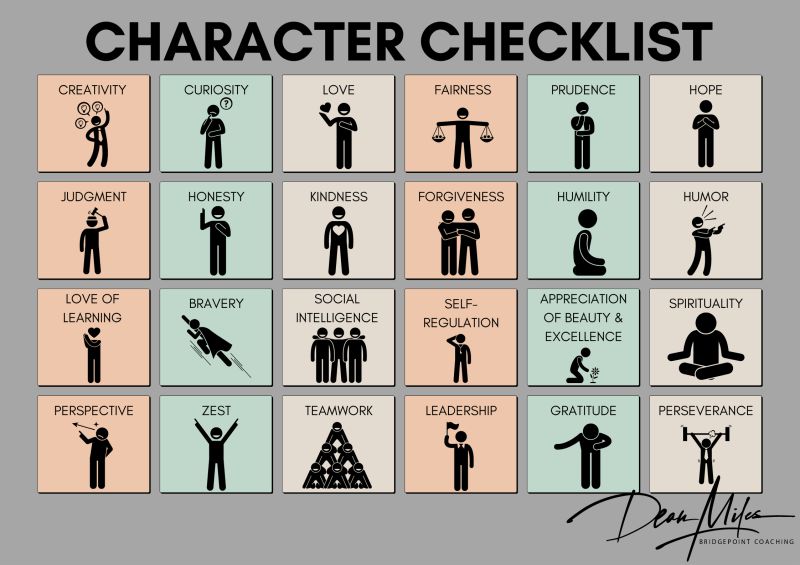 Character Checklist
Character Checklist
Tags: Culture, Entrepreneurship, Leadership
 Remember the Heart
Remember the Heart
Tags: Entrepreneurship, Health and Wellness, Mental Health
 Do You Like It?
Do You Like It?
Tags: Entrepreneurship, Leadership, Startups
 THE COMPLETE LEADERSHIP DEVELOPMENT APPROACH THAT WORKS
THE COMPLETE LEADERSHIP DEVELOPMENT APPROACH THAT WORKS
Tags: Management, Leadership, Entrepreneurship
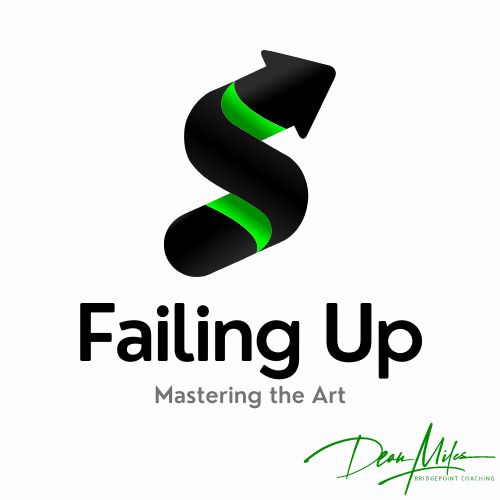 Failing Up
Failing Up
Tags: Business Strategy, Leadership, Management
 This or That - Be Choosy
This or That - Be Choosy
Tags: Business Continuity, Business Strategy, Entrepreneurship
 Appreciate Those Who Failed
Appreciate Those Who Failed
Tags: Business Continuity, Business Strategy, Mental Health
 National Emergency
National Emergency
Tags: Business Continuity, Entrepreneurship, Startups
 Nothing is Easy
Nothing is Easy
Tags: Business Continuity, Entrepreneurship, Startups
 Look at ME!
Look at ME!
Tags: Entrepreneurship, Leadership, Management
 From Uncertainty to Chaos
From Uncertainty to Chaos
Tags: Business Strategy, COVID19, Leadership
 Tricks of the Trade
Tricks of the Trade
Tags: Business Continuity, Entrepreneurship, Startups
 Boost Your Career - Flashing Those Pearly Whites
Boost Your Career - Flashing Those Pearly Whites
Tags: Business Continuity, Entrepreneurship, Startups
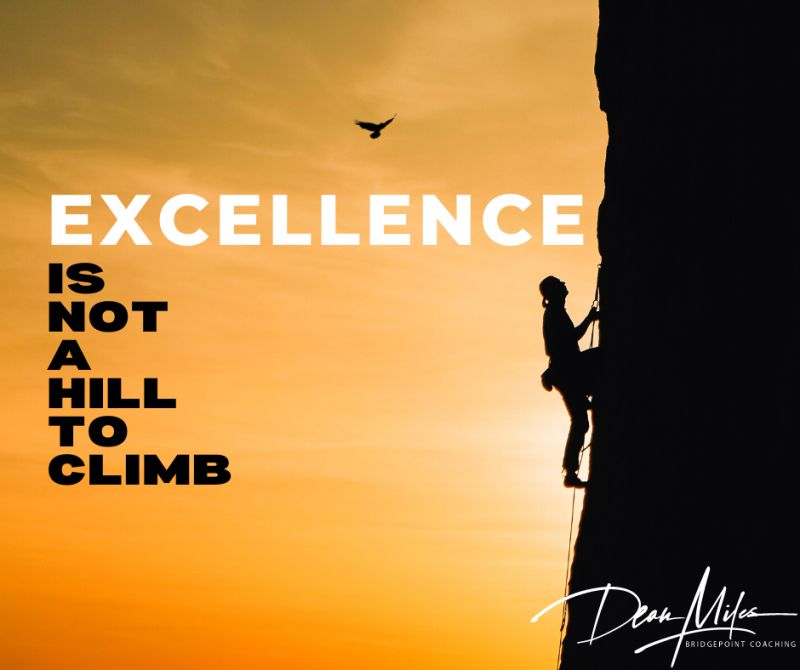 Excellence Is Not A Hill To Climb
Excellence Is Not A Hill To Climb
Tags: Business Continuity, Entrepreneurship, Startups
 Winning Isn't Everything; It's The Only Thing
Winning Isn't Everything; It's The Only Thing
Tags: Business Continuity, Entrepreneurship, Startups
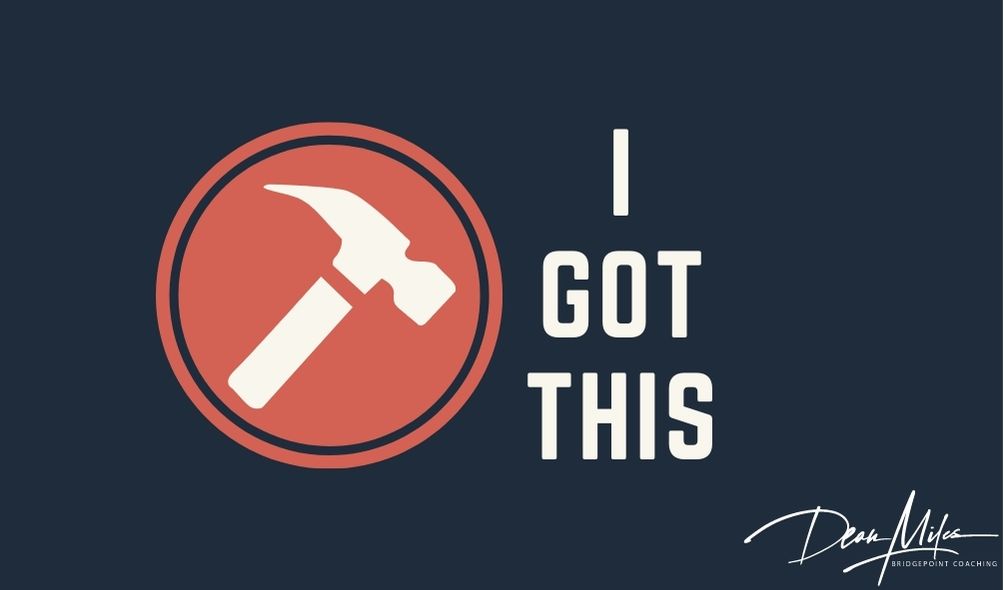 Is your leadership developing at the pace to stay relevant?
Is your leadership developing at the pace to stay relevant?
Tags: Business Strategy, Leadership, Management
 Find Believable People
Find Believable People
Tags: Business Strategy, Leadership, Mental Health
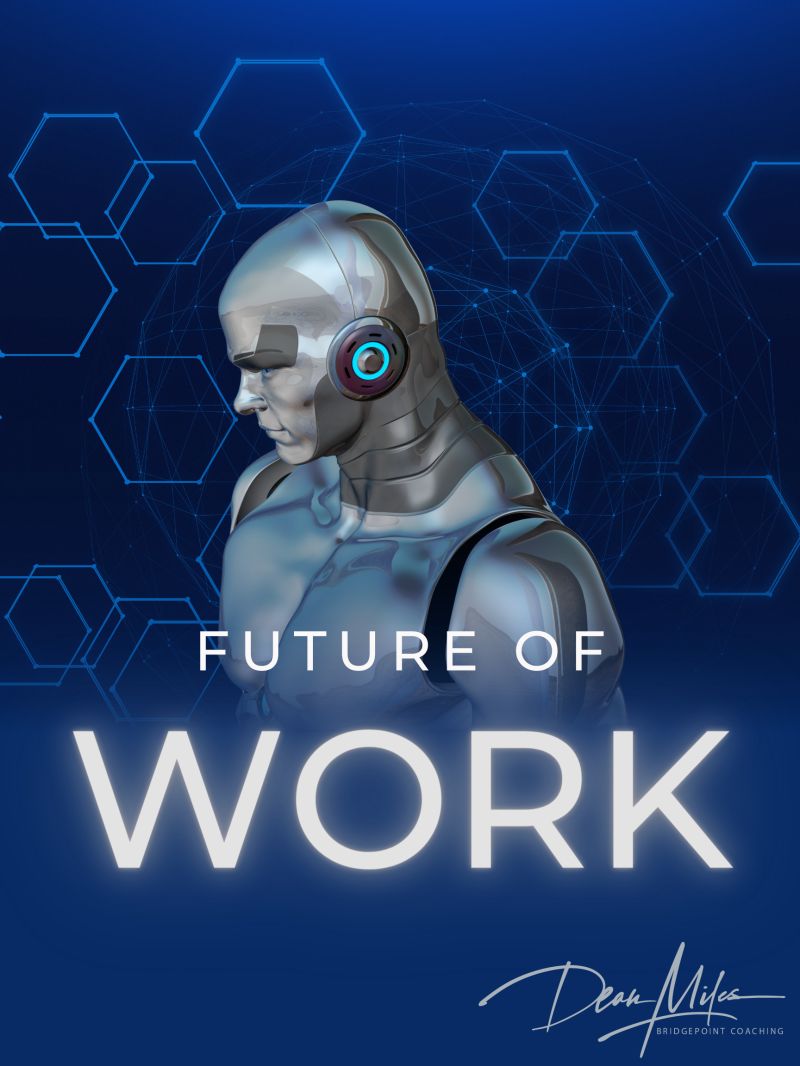 Create a Prosperous Future
Create a Prosperous Future
Tags: Business Strategy, Future of Work, Leadership
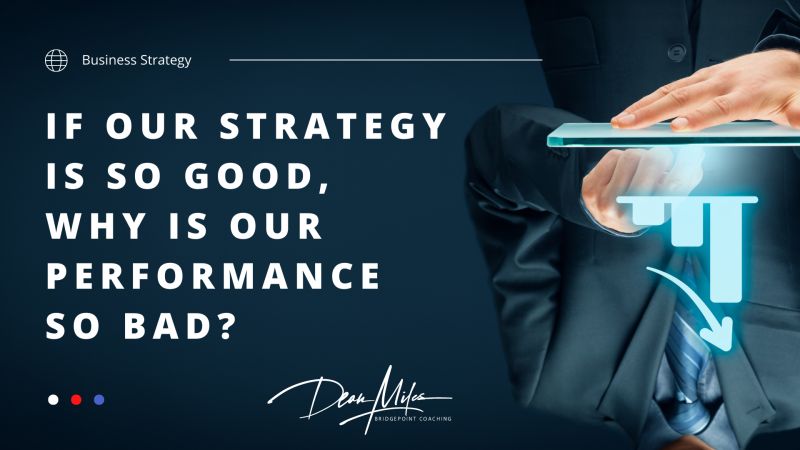 If our strategy is so good, why is our performance so bad?
If our strategy is so good, why is our performance so bad?
Tags: Business Strategy, Entrepreneurship, Startups
 4 WAYS TO GIVE FEEDBACK THAT RIPS THE BLINDERS OFF
4 WAYS TO GIVE FEEDBACK THAT RIPS THE BLINDERS OFF
Tags: Leadership, Culture, Business Strategy
 Hyper-Individualism Is Killing Momentum in Your Best Teams
Hyper-Individualism Is Killing Momentum in Your Best Teams
Tags: Business Continuity, Coaching, Mental Health
 The Unreasonable Ones (and Why Every Ending We Admire Started There)
The Unreasonable Ones (and Why Every Ending We Admire Started There)
Tags: Business Continuity, Coaching, Mental Health
 Why Being the Best Takes a Little Bit of Crazy
Why Being the Best Takes a Little Bit of Crazy
Tags: Business Continuity, Coaching, Mental Health
 I Don’t Lead With Tools, And Neither Should You
I Don’t Lead With Tools, And Neither Should You
Tags: Business Continuity, Coaching, Mental Health
 Every Push Counts: Uncommon Alignment Inside the Flywheel
Every Push Counts: Uncommon Alignment Inside the Flywheel
Tags: Business Continuity, Coaching, Mental Health
 The Uncommon Behavior That Separates High-Performing Leaders
The Uncommon Behavior That Separates High-Performing Leaders
Tags: Business Continuity, Coaching, Mental Health
 Is This Anything?
Is This Anything?
Tags: Business Continuity, Coaching, Mental Health
 Durability vs. Sustainability – Insights from Ram Charan
Durability vs. Sustainability – Insights from Ram Charan
Tags: Business Continuity, Coaching, Mental Health
 Overprotective Yet Oblivious: How Parents Are Failing the Digital Generation
Overprotective Yet Oblivious: How Parents Are Failing the Digital Generation
Tags: Business Continuity, Coaching, Mental Health
 The Quiet Mind: How Awe Shuts Down Our Mental Chatter
The Quiet Mind: How Awe Shuts Down Our Mental Chatter
Tags: Business Continuity, Coaching, Mental Health
 The Compounding Effect of Excellence: Gaining Tenths in Leadership
The Compounding Effect of Excellence: Gaining Tenths in Leadership
Tags: Business Continuity, Coaching, Mental Health
 Job Satisfaction is Dead. Long Live Meaningful Work!
Job Satisfaction is Dead. Long Live Meaningful Work!
Tags: Business Strategy, Coaching, Mental Health
 Beyond Agreement: Tackling the Tough Questions of Team Alignment
Beyond Agreement: Tackling the Tough Questions of Team Alignment
Tags: Business Continuity, Coaching, Mental Health
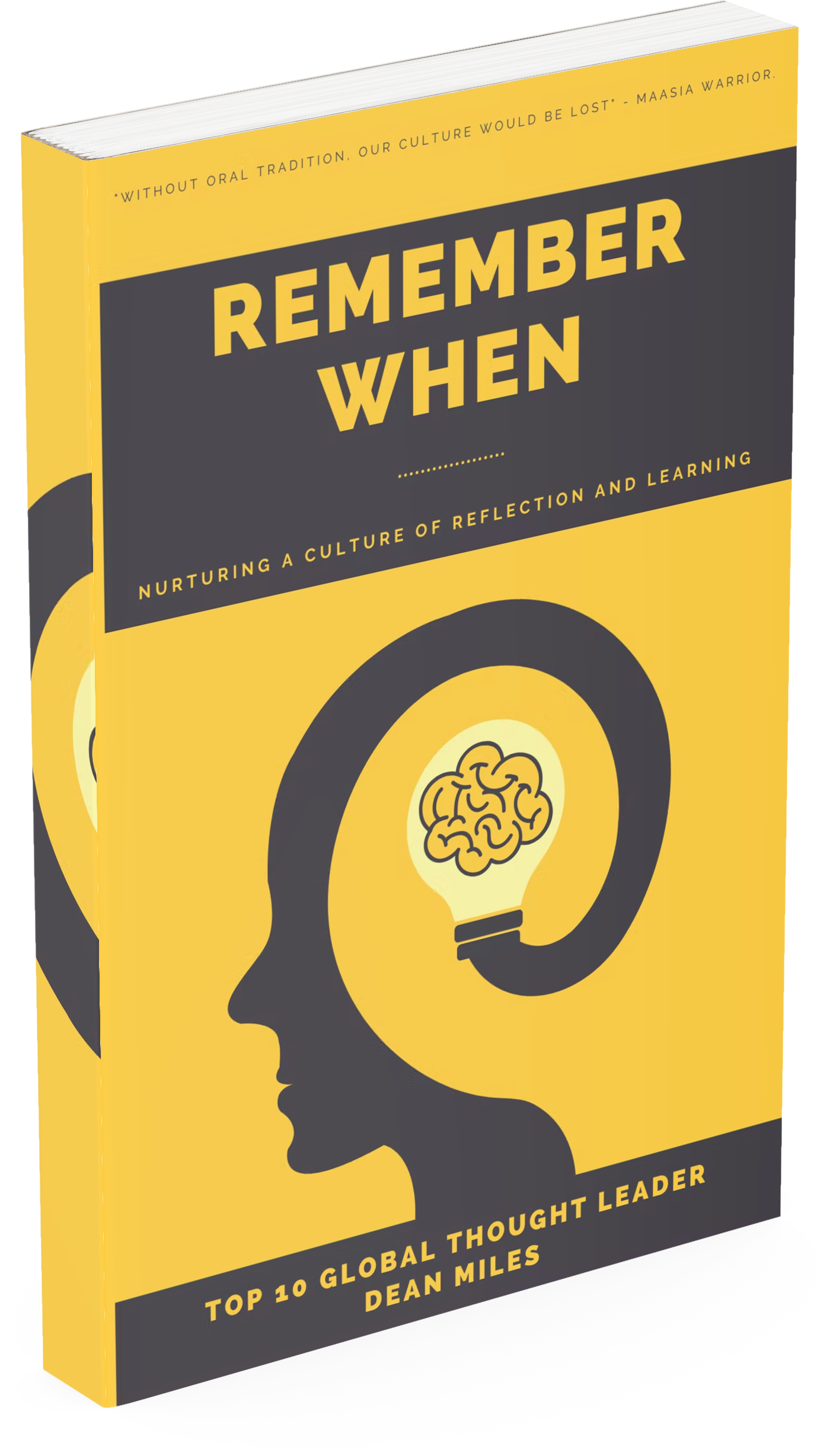 Remember When
Remember When
Tags: Business Continuity, Coaching, Mental Health
 Stock Legal, LLC
Stock Legal, LLC
Tags: Coaching, Entrepreneurship, Leadership
 The Larry H. Miller Company
The Larry H. Miller Company
Tags: Coaching, Entrepreneurship, Leadership
 Ecolab
Ecolab
Tags: Coaching, Entrepreneurship, Leadership
 Bridgepoint Coaching & Strategy Group
Bridgepoint Coaching & Strategy Group
Tags: Entrepreneurship, Leadership, Management
 Top 10 Global Thought Leader - Business Continuity
Top 10 Global Thought Leader - Business Continuity
Tags: Business Continuity
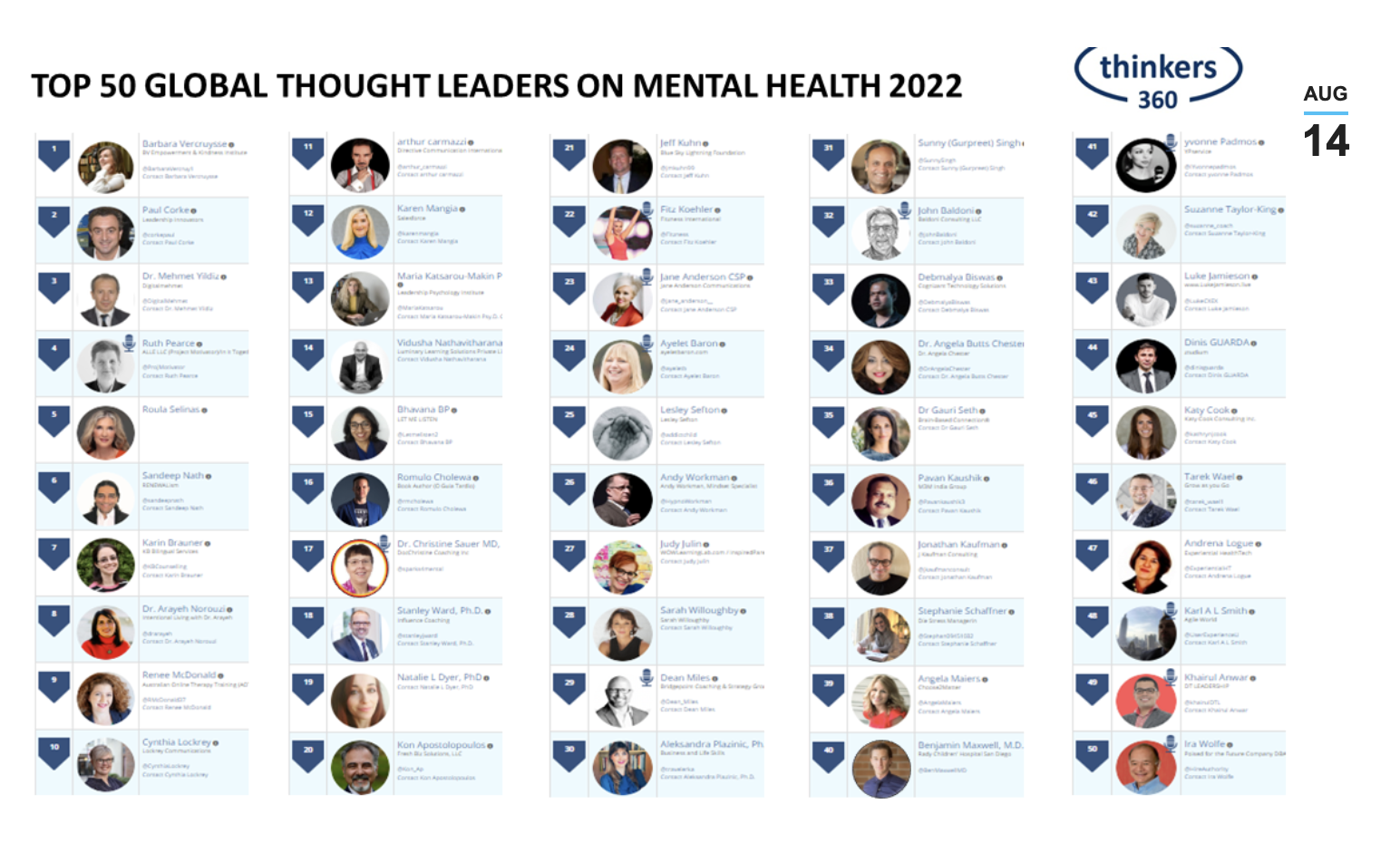 Top 50 Global Thought Leaders and Influencers on Mental Health 2022
Top 50 Global Thought Leaders and Influencers on Mental Health 2022
Tags: Mental Health
 The Year’s Most Popular Articles from Thinkers360 Thought Leader
The Year’s Most Popular Articles from Thinkers360 Thought Leader
Tags: Business Continuity
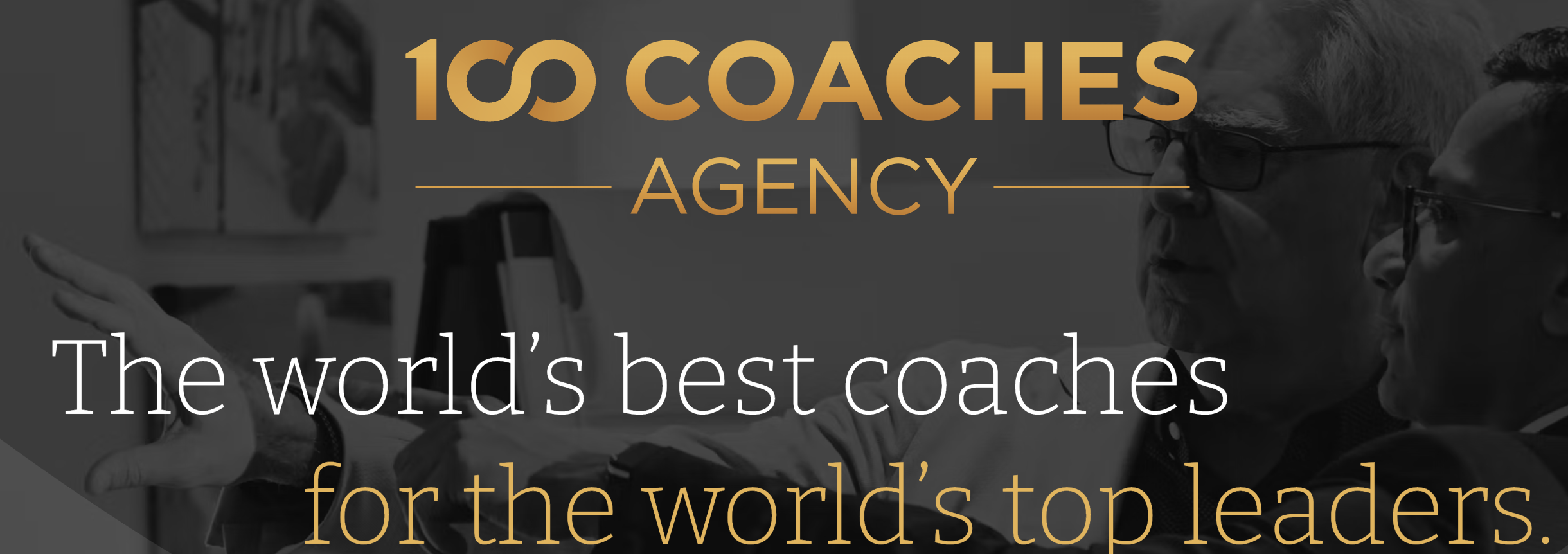 100 Coaches Agency
100 Coaches Agency
Tags: Business Strategy
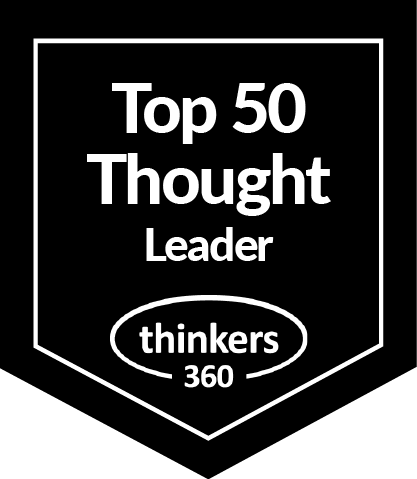 Top 50 Thought Leader - Mental Health
Top 50 Thought Leader - Mental Health
Tags: Mental Health
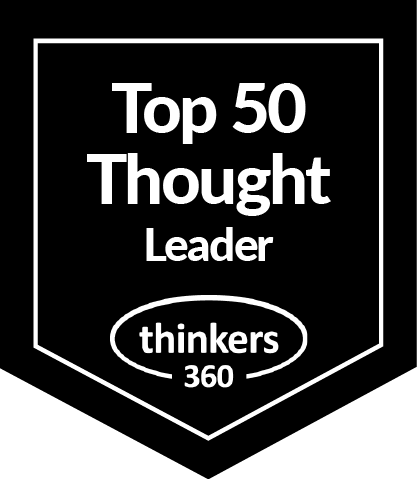 Top 50 Thought Leader in Entrepreneurship
Top 50 Thought Leader in Entrepreneurship
Tags: Entrepreneurship
 Top 25 Thought Leader - Business Continuity
Top 25 Thought Leader - Business Continuity
Tags: Business Continuity
 LeadersHum Certified Partner
LeadersHum Certified Partner
Tags: Leadership
 Marshall Goldsmith 100 Coaches
Marshall Goldsmith 100 Coaches
Tags: Leadership
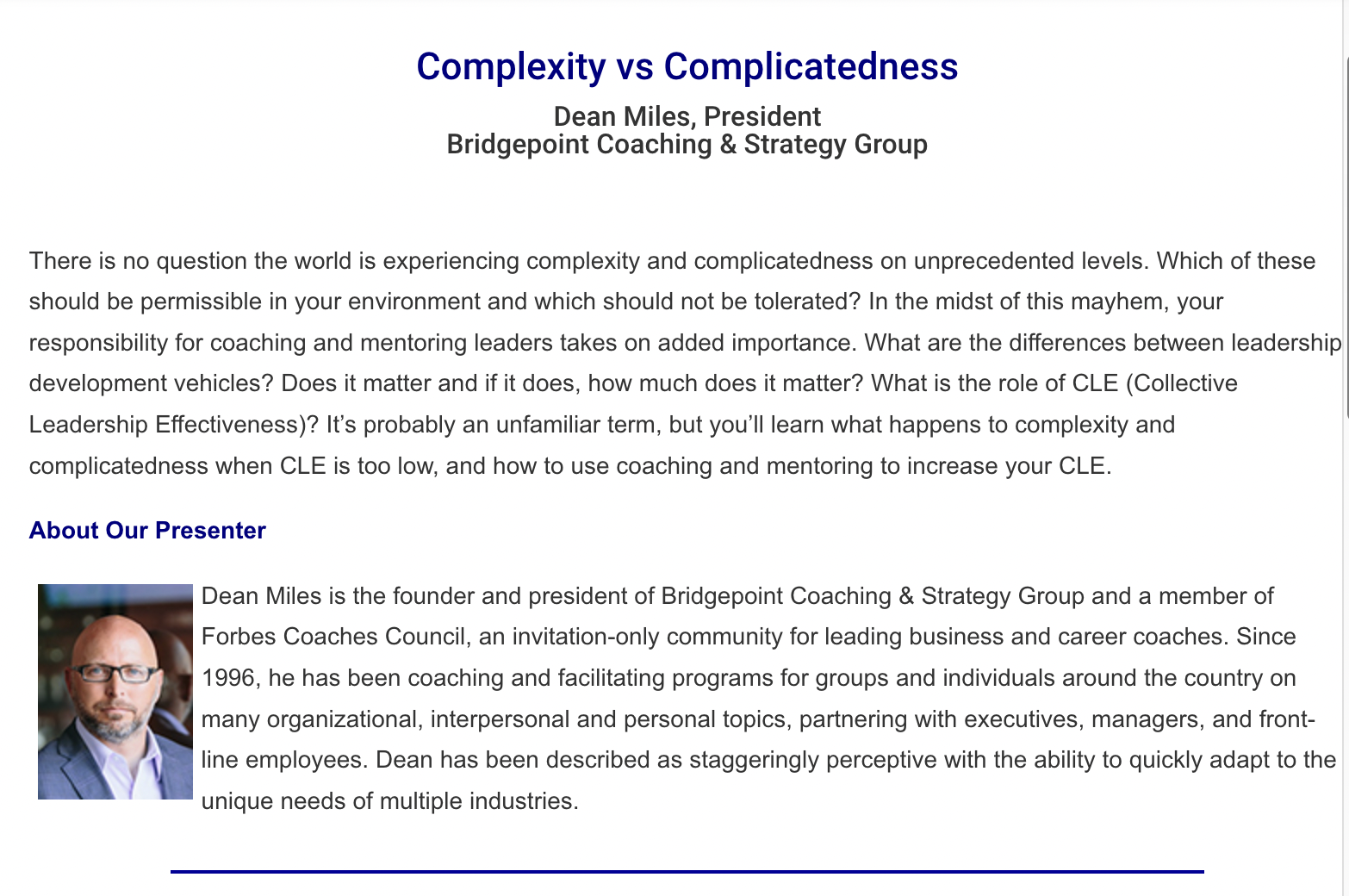 Complexity vs Complicatedness
Complexity vs Complicatedness
Tags: Business Continuity, Entrepreneurship, Leadership
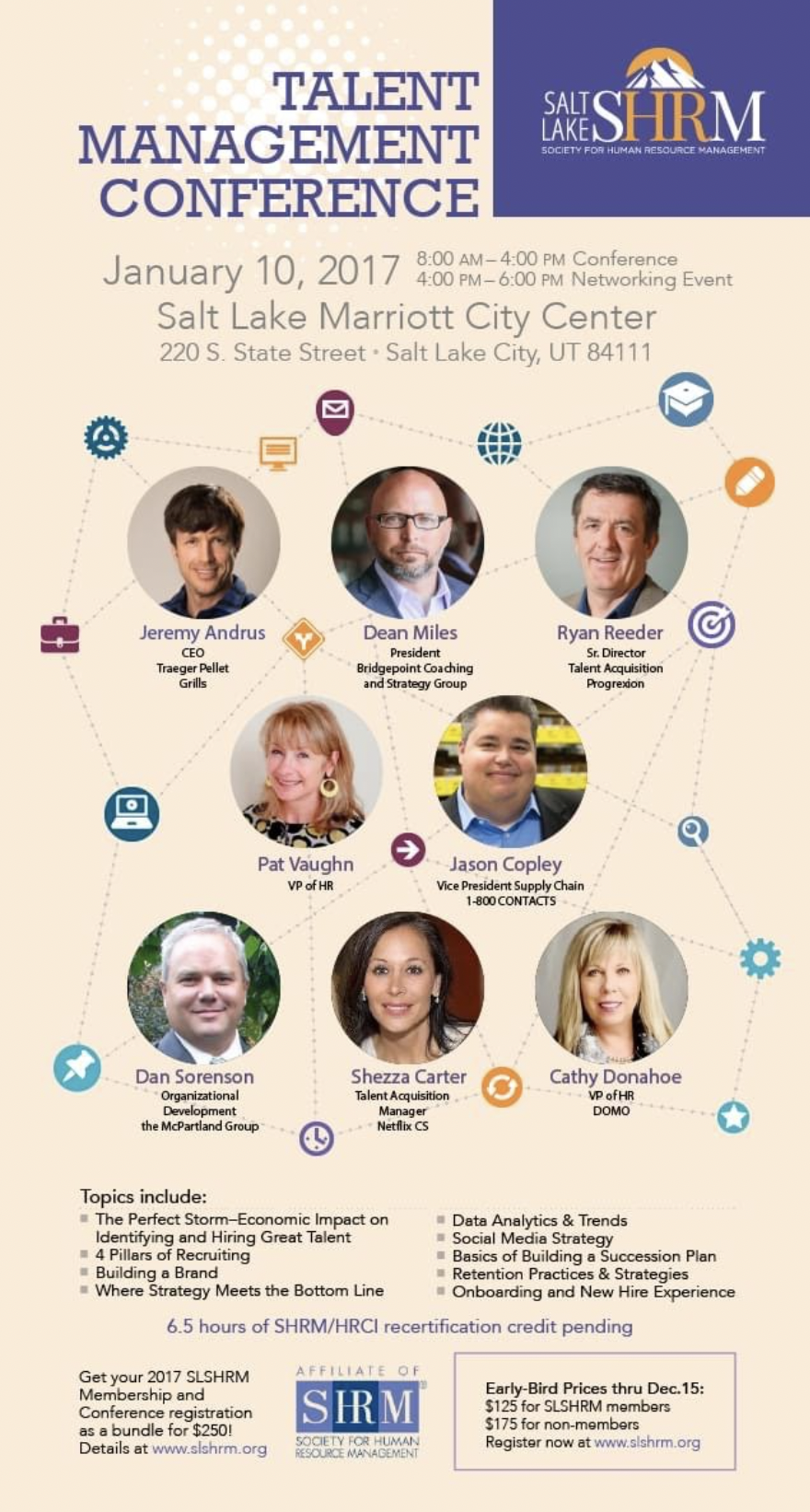 Where Strategy Meets the Bottom Line
Where Strategy Meets the Bottom Line
Tags: Business Continuity, Business Strategy, Entrepreneurship
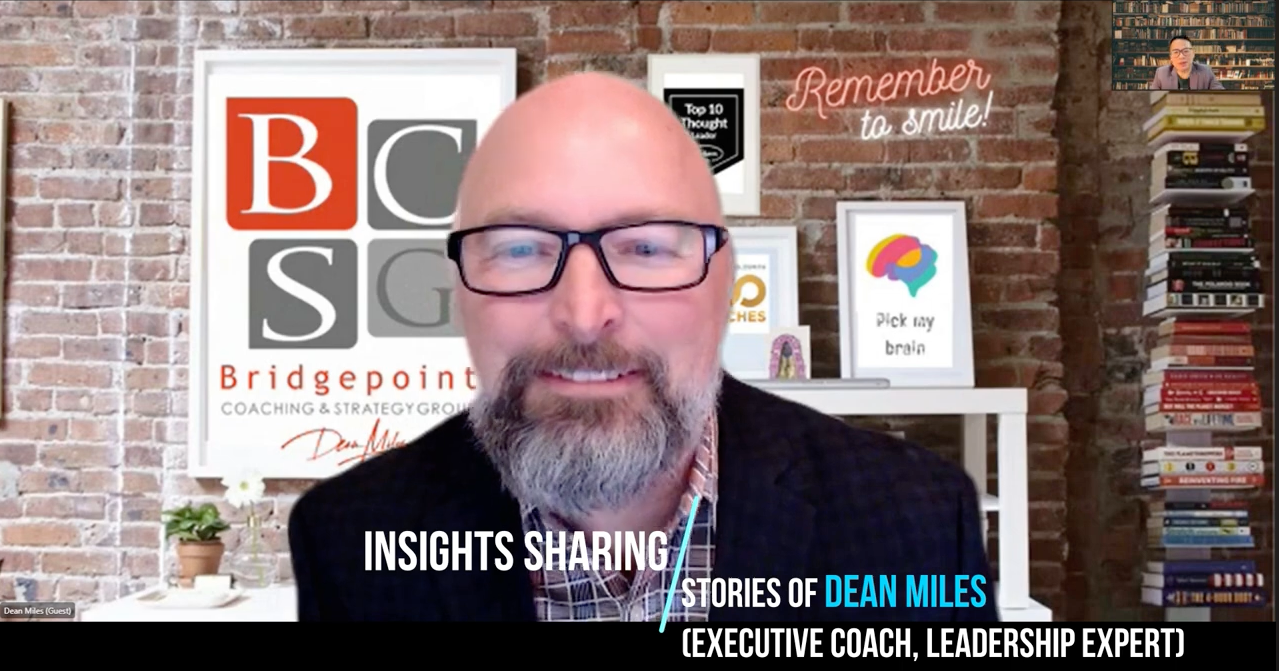 Insights Sharing
Insights Sharing
Tags: Business Continuity, Mental Health, Startups
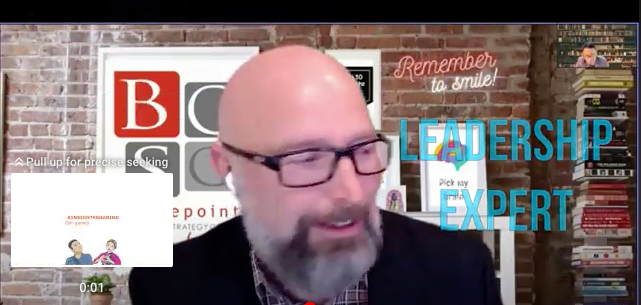 Insight Sharing
Insight Sharing
Tags: Business Continuity, Mental Health, Startups
 Let's Talk Leadership with Dean Miles
Let's Talk Leadership with Dean Miles
Tags: Business Continuity, Mental Health, Startups
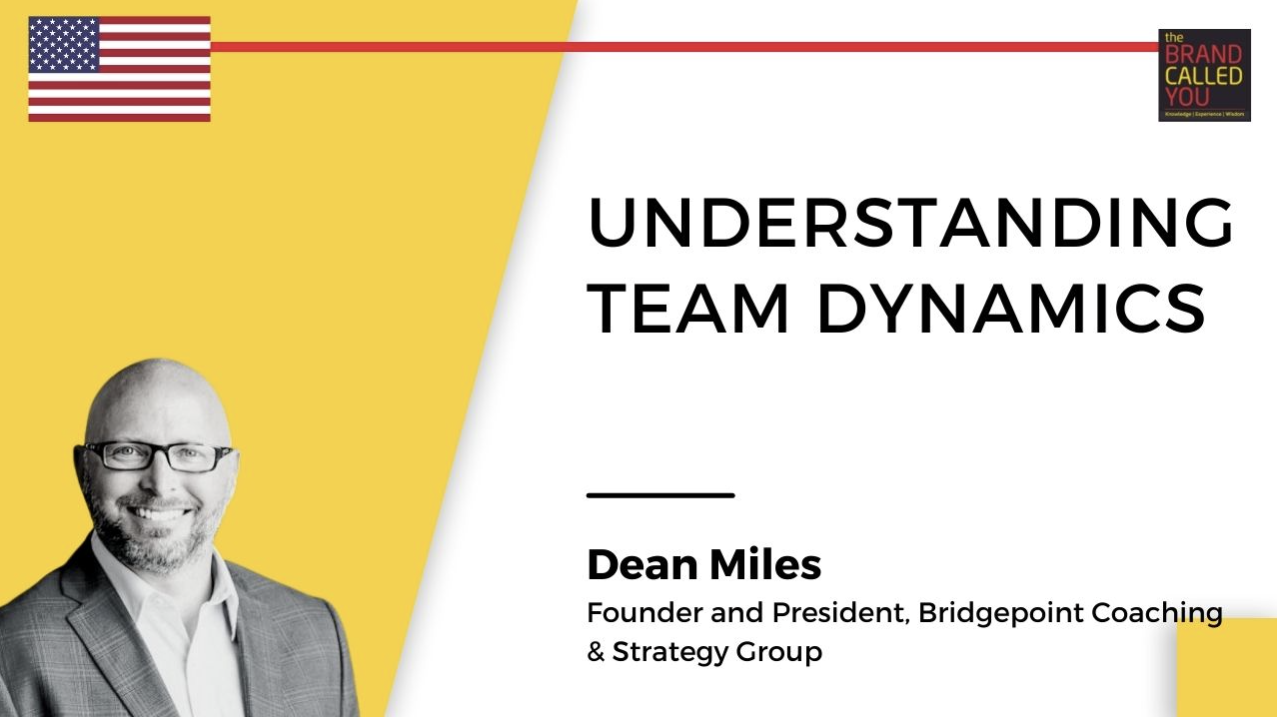 Managing & Measuring Team Efforts
Managing & Measuring Team Efforts
Tags: Entrepreneurship, Leadership, Management

Tags: Management, Leadership, Business Strategy
 Great Leaders Start As Great Followers
Great Leaders Start As Great Followers
Tags: Management, Leadership, Business Strategy
 Reasons The Smartest Employees Are Underperforming
Reasons The Smartest Employees Are Underperforming
Tags: Business Strategy, Entrepreneurship, Startups
 Signs A Manager Needs Outside Help
Signs A Manager Needs Outside Help
Tags: Business Strategy, Entrepreneurship, Startups
 For C-Suite Executives Struggling With The Blues
For C-Suite Executives Struggling With The Blues
Tags: Business Strategy, Entrepreneurship, Startups
 Ways For New Leaders To Develop Their Leadership Skills
Ways For New Leaders To Develop Their Leadership Skills
Tags: Business Strategy, Entrepreneurship, Startups
 Ways To Manage Your Relationship With Your Boss
Ways To Manage Your Relationship With Your Boss
Tags: Business Strategy, Entrepreneurship, Startups
 Ways CEOs Can Avoid Alienating Their Management Teams
Ways CEOs Can Avoid Alienating Their Management Teams
Tags: Business Strategy, Entrepreneurship, Startups
 So, what is Executive Coaching and what makes it so valuable?
So, what is Executive Coaching and what makes it so valuable?
Tags: Leadership, Business Strategy, Coaching
 119 Dean Miles: The Undercover Coach - How Listening To A Loved One Unlocked A Bold New Career Path
119 Dean Miles: The Undercover Coach - How Listening To A Loved One Unlocked A Bold New Career Path
Tags: Business Continuity, Coaching, Mental Health

Tags: Business Continuity, Mental Health, Coaching

Tags: Business Continuity, Mental Health, Coaching

Tags: Business Continuity, Mental Health, Coaching

Tags: Business Continuity, Mental Health, Coaching

Tags: Business Continuity, Mental Health, Coaching

Tags: Business Continuity, Mental Health, Coaching

Tags: Business Continuity, Mental Health, Coaching

Tags: Business Continuity, Mental Health, Coaching

Tags: Business Continuity, Mental Health, Coaching

Tags: Business Continuity, Mental Health, Coaching

Tags: Coaching

Tags: Coaching

Tags: Coaching

Tags: Coaching

Tags: Coaching

Tags: Coaching

Tags: Coaching

Tags: Coaching

Tags: Coaching

Tags: Coaching

Tags: Coaching

Tags: Coaching

Tags: Coaching
 How Do I Stop Feeling Like An Imposter At Work?
How Do I Stop Feeling Like An Imposter At Work?
Tags: Mental Health
Tags: Management, Coaching
Tags: Business Strategy, Coaching
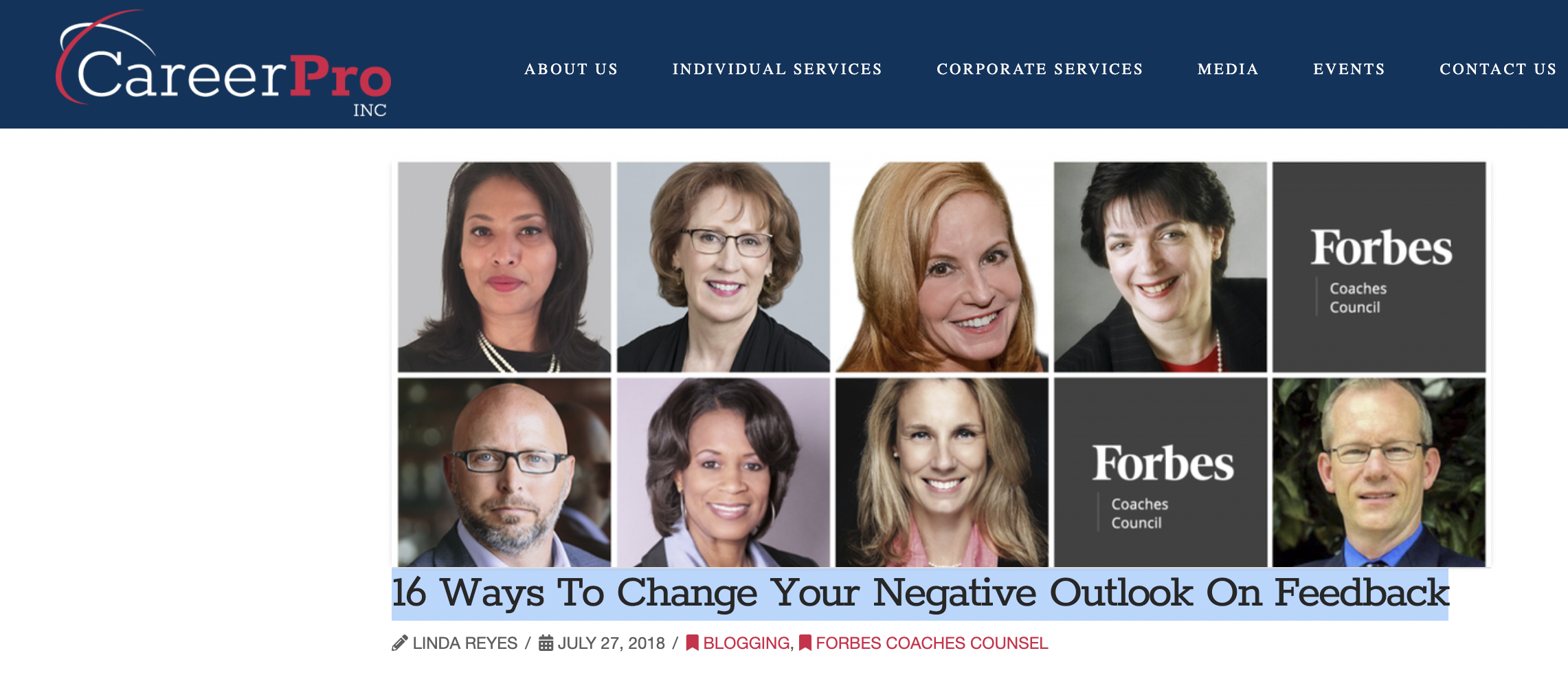 16 Ways To Change Your Negative Outlook On Feedback
16 Ways To Change Your Negative Outlook On Feedback
Tags: Entrepreneurship, Coaching
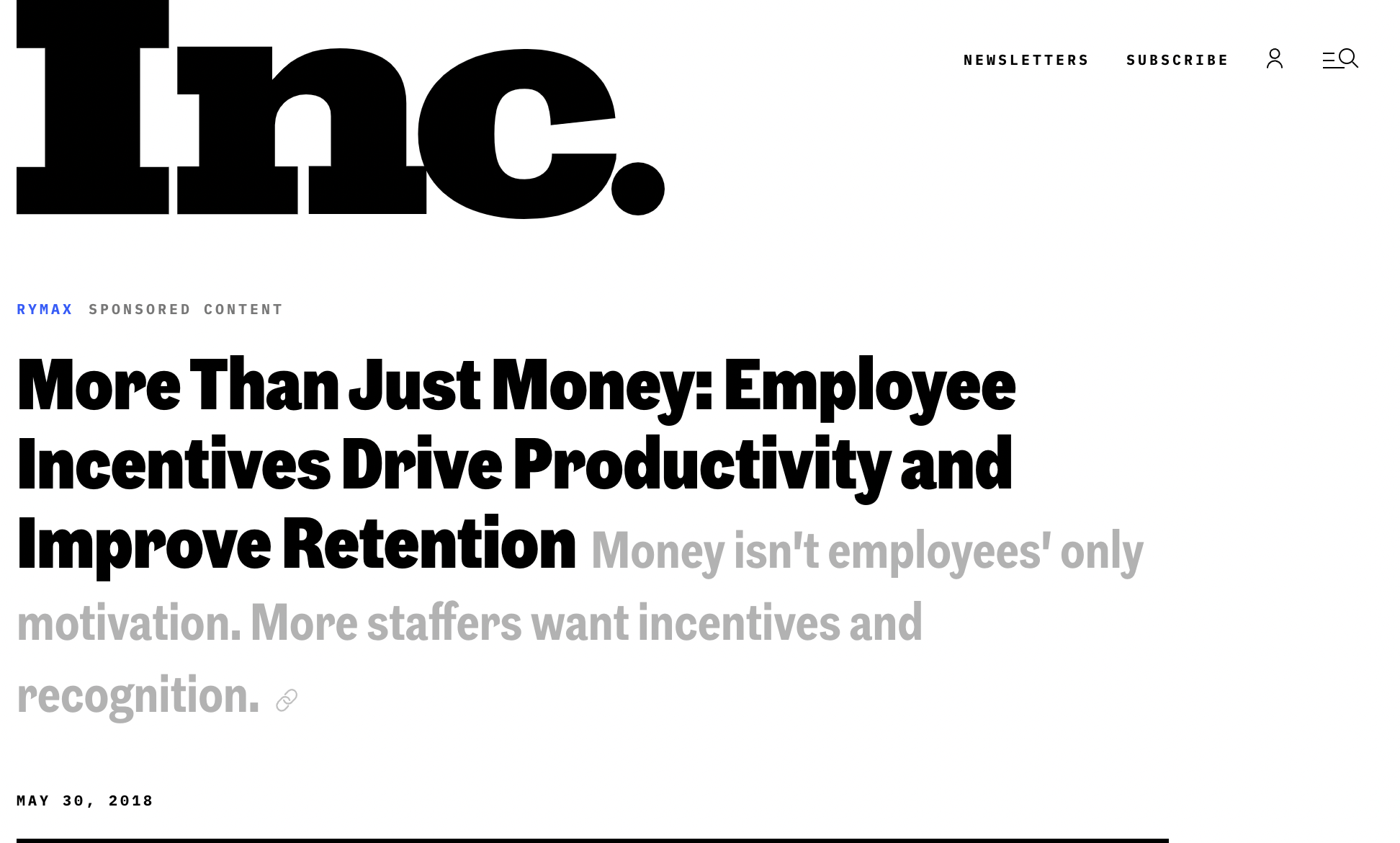 More Than Just Money: Employee Incentives Drive Productivity and Improve Retention
More Than Just Money: Employee Incentives Drive Productivity and Improve Retention
Tags: Leadership, Coaching
 Blind Spots That Plague Even The Best Leaders
Blind Spots That Plague Even The Best Leaders
Tags: Leadership
Tags: Business Strategy, Coaching
 19 Tricks To Shift Your Mind Toward Optimism
19 Tricks To Shift Your Mind Toward Optimism
Tags: Business Strategy, Coaching
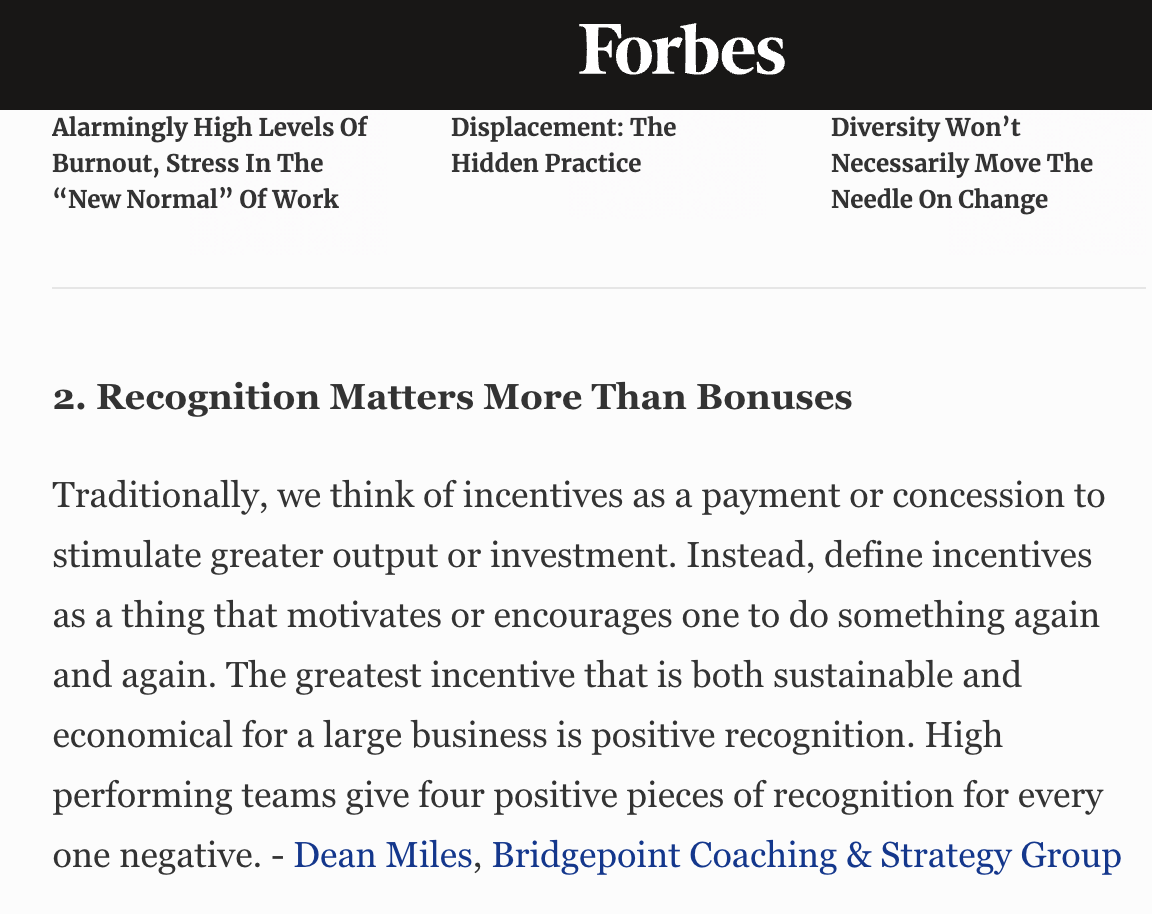 10 Tips For An Incentive Program That Goes Beyond Compensation
10 Tips For An Incentive Program That Goes Beyond Compensation
Tags: Leadership, Coaching
 Dean Miles & Brilliant Miller
Dean Miles & Brilliant Miller
Tags: Business Continuity, Mental Health, Startups

Tags: Leadership, Sustainability

Tags: COVID19, Entrepreneurship, Leadership
Tags: Business Continuity, Business Strategy, Leadership
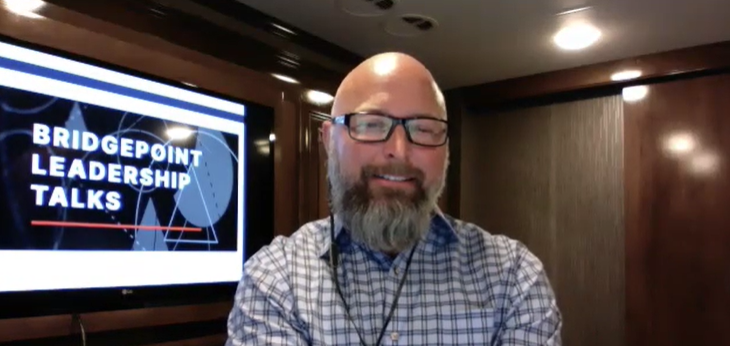 Leading in a time of crisis
Leading in a time of crisis
Tags: Management, Leadership, Business Strategy
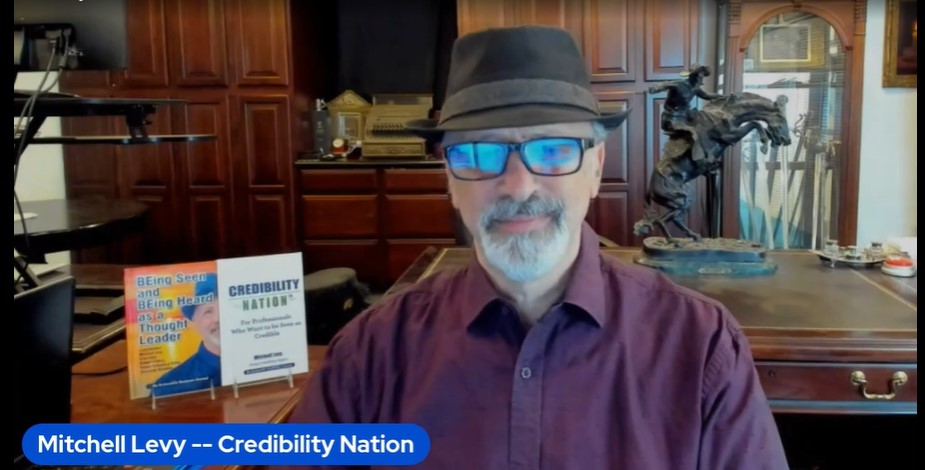 Leaders Living Their Values and Showing Up Credibly
Leaders Living Their Values and Showing Up Credibly
Tags: Startups, Business Continuity, Mental Health
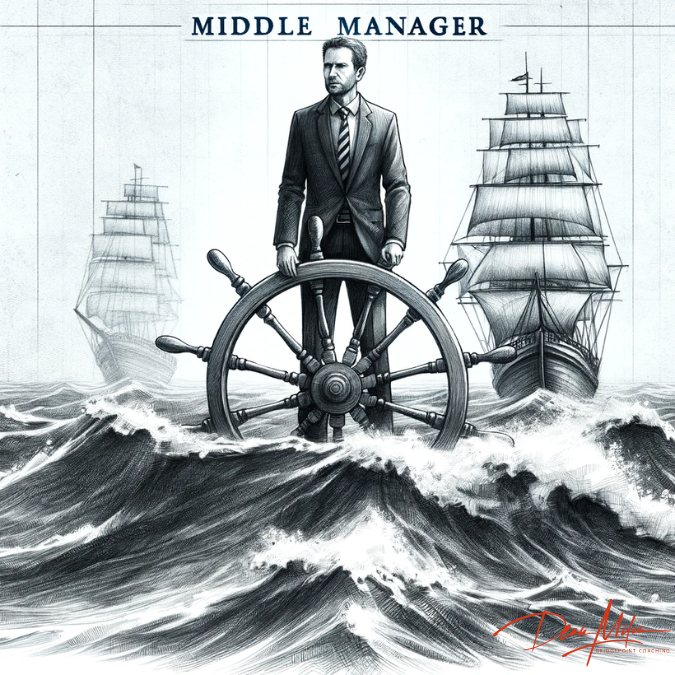 Middle Managers: The Skillful Sailors of Business
Middle Managers: The Skillful Sailors of Business
Navigating through the complexities of today’s business environment, middle managers are the skillful sailors whose leadership capabilities are continuously honed by the rough seas of organizational challenges. The adage, "Smooth seas do not make skillful sailors," resonates deeply within the realm of middle management, where every trial and tribulation serves as a crucible for refining leadership, strategic thinking, and operational excellence. It is through these turbulent waters that middle managers emerge as indispensable navigators, guiding their teams and the organization toward success.
Middle managers are at the heart of translating strategic visions into actionable reality, bridging the gap between upper management's directives and the operational frontline. Their role is critical in ensuring the alignment of daily activities with the organization's overarching goals, making their contributions both unique and invaluable. By navigating the complexities of this role with resilience and adaptability, middle managers not only drive operational efficiencies but also foster a culture of innovation, learning, and continuous improvement within their teams.
The trials middle managers face are not mere obstacles but opportunities that enrich their leadership journey, like rough seas that test and ultimately refine a sailor's skill. These experiences are pivotal in developing the acumen to make strategic decisions, manage diverse team dynamics, and navigate the ever-changing business landscape. By embracing these challenges, middle managers play a crucial role in steering the organization through calm and turbulent times, ensuring its resilience and adaptability.
The feedback loops created by middle managers, conveying insights from the ground up and translating strategic directives into operational action, are vital for the organization's agility and responsiveness. This dual capability underscores the strategic importance of middle managers, highlighting their role as key contributors to the organization's success.
To all middle managers, your tireless efforts, strategic insights, and leadership in the face of challenges are the lifeblood of your organization. Your ability to navigate through the unpredictable waves of business, ensuring the ship not only stays its course but also thrives, is truly commendable. The organization's success is a testament to your skill, resilience, and dedication. Thank you for being the steadfast captains of your teams, the skillful sailors navigating the ever-changing seas of business. Your journey, marked by the trials that refine your leadership, is a beacon of inspiration and a cornerstone of organizational success.
Tags: Business Continuity, Coaching, Mental Health
 Old School to New School: My Path from Traditional Education to a Tech-Savvy Master's Degree
Old School to New School: My Path from Traditional Education to a Tech-Savvy Master's Degree
In 1992, the year I graduated from college, the world of education and technology was vastly different. My days were filled with sitting in desks and libraries, engrossed in the quiet solitude of books and the shared discussions of customary classroom settings. Fast forward to today, and at age 54, I have completed my Master’s degree in Executive Leadership with high distinction. This journey has been more than an academic pursuit. It has been an extensive lesson, highlighting the transition from a past of what was into the current wave of what is.
The journey of this second chapter later in life creates particular challenges. The digital transformation reshaped the process of how we learn, communicate, and access information. Instead of books and limited sources, the Master’s program encompassed sitting at a standing desk full of cutting-edge technology, scouring every library in the world through cyberspace. The known world and then some were accessible through a click of a mouse, requiring a willingness to learn and adapt, essential qualities in any leadership role.
It was paved through predawn mornings and extended into marathon evenings. It was a testimony to the devotion and discipline essential to navigating life’s responsibilities through the tired eyes of academic pursuits. It was filled with lectures, reading, writing, rewriting, posting, and researching. Each phase was a renewed light of a deepened understanding and sharpened skill, made possible by modern technology that gives a much broader and deeper access to information than time has ever given us.
It was a lesson that learning is an ongoing journey. It emphasizes that as technology evolves and knowledge inflates in the field of executive leadership, the message is that curiosity and change are the ingredients that quintessentially matter. It is also the safety net that ensures the necessity of the overarching values of perseverance and resilience, which are critical to any successful journey of leadership.
This journey has been a rewarding experience, filled with lessons that extend far beyond the classroom. The transition from the traditional learning environments of my college days to the advanced digital workspace of my Master's studies underscores the dynamic nature of education and the endless possibilities that come with embracing change.
Tags: Business Continuity, Coaching, Mental Health
 The Rush to Nowhere: Finding Leadership Success in Presence and Patience
The Rush to Nowhere: Finding Leadership Success in Presence and Patience
As an executive coach guiding high-level leaders across diverse sectors in 2024, I've become increasingly attuned to the nuances that define effective leadership and personal fulfillment. The compelling narrative shared by Melissa Kirsch in a recent New York Times article starkly highlights the pitfalls of our culture's obsession with speed and productivity. Through the simple yet profound lens of a personal mishap—rushing to catch a subway and the consequent minor injuries—Kirsch brings to life a critical lesson: the misery often found in our haste is largely self-inflicted. This narrative resonates deeply with the principles I impart upon the leaders I coach, especially the critical balance between leadership warmth and management rigor.
Incorporating the insights from Kirsch's article, I stress the importance of presence—not merely physical but emotional and mental presence—in leadership. The relentless pace at which we operate, marked by a constant state of racing, hurrying, and being late, not only diminishes our personal well-being but also erodes the quality of our professional engagements. It's a vivid reminder that the rush to achieve, to solve, and to conclude can often lead us astray, away from thoughtful consideration and deep, meaningful connections.
Leadership warmth, characterized by empathy, understanding, and genuine concern for others, is crucial in creating an environment where team members feel valued and understood. This warmth, however, must be balanced with management rigor—the disciplined approach to decision-making, accountability, and performance excellence. The challenge lies in embodying warmth without sacrificing rigor, and vice versa. This equilibrium is delicate and requires a leader to be fully present, to listen actively, and to engage deeply with their team and their work.
The habit of rushing—whether due to perceived efficiency or an attempt to escape discomfort—often leads to a superficial engagement with our tasks and our teams. This not only undermines our effectiveness as leaders but also our capacity to inspire and influence those around us. The story from the New York Times serves as a powerful reminder to slow down, to prioritize being over doing. It underscores the fact that true leadership is as much about how we guide and inspire others as it is about the targets we achieve.
In my coaching, I encourage leaders to pause and reflect: "Where am I going? And why am I in such a hurry?" This introspection is not about questioning one's drive or ambition but about fostering a mindfulness that enhances decision-making and interpersonal relationships. By integrating the lessons from Kirsch's reflection with the principles of leadership warmth and management rigor, leaders can cultivate a style that not only achieves results but also fosters a culture of care, respect, and mutual growth.
Tags: Business Continuity, Coaching, Mental Health
 Think Smoking Breaks Are Just for Smokers? Think Again
Think Smoking Breaks Are Just for Smokers? Think Again
I want to share a thought that emerged from a recent strategic planning session with a client, which ties together unconventional wisdom and practical insights. This is about learning from smokers - not for the smoking, but for their habit of taking breaks, a concept I like to call 'smoke the stress'.
In high-stress environments like strategic planning, it's easy to get caught in a relentless cycle of meetings and decision-making. During the session, I observed that the smokers on the team would regularly step outside for a smoke break. This pattern highlighted a crucial lesson: the importance of taking deliberate, regular breaks to decompress and refocus, irrespective of smoking.
Here's why this practice is a game-changer for leaders and high-performing teams:
So, whether it's stepping outside, taking a deep breath, or simply pausing for a moment, these 'smoke breaks' (minus the smoking) are a simple yet powerful way to rejuvenate and refocus. It's about breaking the cycle, slowing down, and allowing ourselves that crucial moment of pause.
Adopting the 'smoke break' mentality, metaphorically speaking, could be the key to enhanced performance and well-being in high-pressure situations.
Tags: Business Continuity, Coaching, Mental Health
 Anticipation vs. Action: A Leadership Dilemma in Crossing Bridges
Anticipation vs. Action: A Leadership Dilemma in Crossing Bridges
"Never cross a bridge until you come to it." This simple yet profound adage holds a world of significance, especially when applied to leadership and team dynamics. But why is adhering to this principle so challenging, and what are the costs of ignoring it?
The Temptation to Cross the Bridge Early: In our fast-paced world, leaders and teams often feel pressured to anticipate and solve problems before they fully manifest. This proactive approach, while seemingly beneficial, can lead to unnecessary stress, wasted resources, and a focus on hypotheticals rather than real, immediate issues. The temptation to 'cross the bridge' early is rooted in a desire for control and predictability, but it often leads to overlooking present opportunities and strengths.
The Cost of Premature Crossing: When teams engage in over-planning for the future, they risk becoming mired in 'analysis paralysis,' where decision-making slows down due to overthinking potential scenarios. This not only hampers immediate productivity but can also stifle creativity and innovation. Moreover, it can create a culture of fear and uncertainty, as team members become overly focused on what might go wrong in the future rather than what they can achieve in the present.
Achieving the 'Never' Level: To truly embrace the philosophy of "never cross a bridge until you come to it," leaders and teams can ask themselves the following questions:
The principle of "never crossing a bridge until you come to it" presents a significant challenge in our forward-thinking business culture. It requires a shift in mindset from predictive problem-solving to present-focused adaptability and resilience. By asking the right questions and fostering a culture of agility, leaders and teams can navigate the complexities of the modern business landscape more effectively and sustainably.
Tags: Business Continuity, Coaching, Mental Health
 The Art of the Straight Line
The Art of the Straight Line
I recently had an intriguing conversation with a friend of mine, an architect. We were discussing the nuances of design when he shared a fascinating quote from a Tibetan monk about the art of drawing a straight line: “To draw or paint a straight line, you always pull towards yourself, never push away.”
This simple yet profound advice made me reflect deeply, especially on its implications for leadership.
Pulling Towards, Not Pushing Away
In architecture, as in leadership, the significance of the direction in which we apply our efforts is paramount. My architect friend explained how every line they draw is the foundation of a larger vision, much like the decisions made by a leader. The monk's counsel, to pull rather than push, resonates with the idea of leading by attraction and inspiration rather than force. Great leaders, like skilled architects, know the importance of drawing their team and resources towards a shared goal, creating a cohesive and driven group.
The First Line: A Beginning and a Commitment
In architectural design, the first line on paper is both a beginning and a commitment to a vision. This line sets the course for everything that follows. Similarly, a leader’s initial vision and decisions set the tone for their team's journey. It’s about making that first mark with certainty and clarity, ensuring it leads in the right direction.
Mindfulness and Vision: The Triangle from Eye to Heart
The monk’s concept of visualizing a triangle from the pencil tip to the eye, then to the heart, and back to the pencil, struck me as a powerful metaphor for mindful leadership. It's not just about where we lead but how we lead. Being mindful of our vision (the eye), our emotions and values (the heart), and our actions (the pencil tip) ensures that we lead in a way that is true to both our goals and our principles.
Just as architects draw lines to create spaces that inspire, facilitate, and protect, leaders draw invisible lines that guide, motivate, and support. This conversation with my architect friend reminded me that leadership, like any art, requires not only skill and knowledge but also a mindful, heart-centered approach.
As we step into this new year, let's remember the lesson of the straight line. May we pull towards ourselves not just success and achievements, but also deeper connections, meaningful experiences, and a leadership path that aligns with our most authentic intentions.
Tags: Business Continuity, Coaching, Mental Health
 Investing in Emotions: An Executive Coach's Guide to Personal Fulfillment
Investing in Emotions: An Executive Coach's Guide to Personal Fulfillment
Through my journey, I've come to embrace a profound realization, strongly echoed by the words of a highly successful billionaire. He spoke of life as an "emotional experience," a perspective that deeply resonates with me. His willingness to invest significantly in enhancing his emotional journey aligns closely with my own beliefs about the transformative power of personal growth.
I understand now more than ever that our emotional well-being is not just a part of life; it's the foundation of our entire experience. The way we handle emotions, confront stress, and connect with others fundamentally shapes every aspect of our existence. This realization has been a guiding force in my approach to executive coaching, emphasizing its role as a crucial tool in enriching life's emotional journey.
Originally, I viewed executive coaching as a pathway primarily for professional advancement. But my viewpoint has evolved over the years. It's no longer just about climbing the career ladder; it's about elevating the overall quality of the journey itself. The transformative impact of coaching is not merely in career success but in fostering emotional intelligence, resilience, and personal growth.
My experiences and those of my clients have illustrated how coaching can profoundly enhance confidence, effectiveness, and self-awareness. This approach to coaching, valuing the cultivation of emotional intelligence, goes beyond mere monetary returns. It promises a richer, more fulfilling life experience.
I've witnessed firsthand how leaders' investment in their emotional growth positively impacts entire teams and organizations. This broader effect is a testament to the value of seeing life as an emotional experience, where success is not just about individual achievements but also about creating a positive, growth-oriented culture for everyone.
In a world often preoccupied with immediate, tangible results, I advocate for a different approach. I believe in the importance of prioritizing long-term, intangible growth, focusing on emotional and mental well-being. This perspective has driven my coaching philosophy and approach.
The experiences and transformations I've seen in individuals and teams emphasize the immense value of focusing on emotional intelligence and personal development. It's about creating cohesive, efficient teams and organizations where everyone thrives.
Embracing this perspective on life as an emotional journey and the importance of investing in its enhancement has been pivotal. As I continue to guide others through executive coaching, this wisdom shapes my approach. Investing in services like coaching is not merely a pathway to professional success; it's a journey towards comprehensive emotional and personal fulfillment.
Tags: Business Continuity, Coaching, Mental Health
 From Red Alert to Re-engagement: A Leader's Guide to High-Performance Teams
From Red Alert to Re-engagement: A Leader's Guide to High-Performance Teams
Recently, a client approached me with a pressing concern: "How do you manage low engagement in a high-performance team?" This question struck a chord with me, as it touches on a critical aspect of team dynamics and performance.
High-performance teams are the engines of innovation and success in any organization. These teams operate at peak efficiency, driven by a relentless ambition and a collective commitment to excellence. However, even the most efficient engines can sputter. When a high-performance team shows signs of low engagement, it's not just a problem; it's an alarm bell.
Understanding the Gravity of the Situation
The first thing to recognize is the seriousness of the issue. Low engagement in a high-performance team isn't just a minor hiccup; it's a symptom of deeper issues that need immediate attention. In such scenarios, a sense of urgency is crucial. Complacency can lead to a downward spiral, affecting morale, productivity, and eventually, the overall success of the project or the organization.
The Five Cs Approach
In my approach to tackling this challenge, I focus on what I call the 'Five Cs': Clarified, Confirmed, Communicated, Connected, and Consequences. This framework helps in diagnosing the issue and formulating an effective response strategy.
Clarified: The first step is to ensure that the team's goals, roles, and expectations are crystal clear. High-performance teams thrive on clarity. Any ambiguity in understanding the team's objectives can lead to confusion and disengagement. It's essential to revisit the team's goals and ensure they are well-defined and understood by everyone.
Confirmed: Once the goals are clarified, the next step is to confirm that each team member understands their role in achieving these objectives. This involves not just understanding their tasks but also recognizing the value they bring to the team. A sense of purpose is a powerful motivator, and confirming this can reignite engagement.
Communicated: Effective communication is the lifeblood of high-performance teams. It's not just about disseminating information; it's about ensuring open and transparent dialogue. In situations of low engagement, it's critical to examine the communication channels within the team. Are concerns being heard? Are feedback loops effective? Strengthening communication can help in identifying underlying issues and addressing them.
Connected: High-performance teams are more than just a group of skilled individuals; they are a cohesive unit. A sense of connection and camaraderie is essential for maintaining engagement. When engagement dips, it's often a sign that these connections need to be strengthened. Team-building activities, informal gatherings, and open forums for sharing can help in re-establishing these bonds.
Consequences: Finally, it's important to understand and communicate the consequences of low engagement. High-performance teams are driven by results, and understanding the impact of disengagement on these results can be a wake-up call. It's about creating a sense of accountability and responsibility towards the team's objectives.
Implementing the Strategy
Once the issue is diagnosed using the Five Cs framework, the next step is implementation. This involves a series of targeted actions aimed at addressing the specific areas identified. It could mean setting up individual meetings to understand personal grievances, revisiting the team's goals in a group setting, or organizing team-building exercises to strengthen connections.
Prevention is Better than Cure
While addressing low engagement is critical, preventing it is even more so. Regular check-ins, creating an open and inclusive culture, and recognizing and celebrating successes can go a long way in maintaining high levels of engagement.
A Call to Action
Managing low engagement in a high-performance team requires a swift and strategic response. It's about recognizing the issue, understanding its gravity, and implementing a targeted strategy to address it. The Five Cs framework provides a comprehensive approach to diagnosing and resolving engagement issues, ensuring that your high-performance team remains just that - high performing.
Tags: Business Continuity, Coaching, Mental Health
 The Illusion of Knowledge
The Illusion of Knowledge
In an age where information is at our fingertips, distinguishing between deep understanding and superficial knowledge becomes increasingly vital. This distinction was eloquently highlighted by the legendary thinker Charlie Munger, who cautioned against the illusion of knowledge. Munger's insights are particularly relevant today, as we navigate a world saturated with information but often starved of wisdom.
Munger illustrated this concept using the anecdote of Nobel laureate Max Planck and his chauffeur. After winning the Nobel Prize, Planck toured Germany, delivering lectures on quantum mechanics. Over time, his chauffeur memorized the lecture and could recite it flawlessly. Once, as the story goes, the chauffeur even successfully delivered the lecture in Planck's stead. However, when faced with a complex question from the audience, the chauffeur's superficial understanding was exposed. He had the words but not the comprehension.
This story serves as a powerful metaphor for the difference between truly understanding a concept and merely knowing about it. In our daily lives, we are often the chauffeur, armed with information easily retrieved from a quick internet search or gleaned from a headline. We can talk the talk, but do we truly understand the subject at hand?
Munger's principle urges us to delve deeper, to seek a genuine understanding rather than settling for surface-level knowledge. This pursuit involves critical thinking, questioning, and connecting ideas in a way that goes beyond rote memorization or passive consumption of information.
In the professional world, this distinction is crucial. Superficial knowledge may help in making a quick impression, but deep understanding is what leads to innovative solutions, sound decision-making, and long-term success. In personal growth, too, understanding deeply enriches our perspectives, enabling us to engage more meaningfully with the world around us.
Achieving deep understanding requires effort and curiosity. It means not just learning the 'what' but exploring the 'why' and the 'how.' It involves seeking out diverse sources, engaging in thoughtful dialogue, and applying knowledge in practical contexts. It's about being comfortable with complexity and uncertainty, and having the humility to acknowledge the limits of our knowledge.
Munger's warning about the illusion of knowledge is a call to action. It challenges us to go beyond the convenience of superficial understanding and embark on a lifelong journey of learning and discovery. As we navigate the vast sea of information in our digital age, let us remember the value of depth over breadth, of understanding over mere knowing.
Tags: Business Continuity, Coaching, Mental Health
 Worries in the Rearview: A Year-Long Perspective Shift
Worries in the Rearview: A Year-Long Perspective Shift
The quote, "If you want to test your memory, try to recall what you were worrying about one year ago today," offers a profound reflection on the nature of our concerns and the passage of time. This simple exercise in retrospection can be an enlightening journey into understanding the transient nature of our worries and the broader perspective of life's journey.
One year ago, each of us was likely consumed by a set of worries that felt all-encompassing at the time. These could have ranged from personal anxieties about health, relationships, or career, to broader concerns about the state of the world. Yet, when we attempt to recall these worries today, we often find that many of them have dissolved, resolved, or evolved into something else. This realization highlights the ephemeral nature of most worries. It suggests that while our concerns feel deeply significant in the moment, many of them lose their intensity with the passage of time.
The act of looking back not only diminishes the scale of past worries but also offers a perspective on our growth. Reflecting on the past year, we can see how we have navigated through various challenges, adapted, and perhaps grown stronger. This introspection can be a source of encouragement and resilience, reminding us that just as we have overcome past worries, we are capable of addressing current and future challenges as well.
Understanding the transient nature of worries can also teach us the value of living in the present. By recognizing that many of our current worries will likely seem less significant in hindsight, we can learn to focus more on the present moment. This doesn't mean disregarding future planning or ignoring problems, but rather balancing concern with a mindful appreciation of the now.
Often, our worries stem from a desire to control outcomes in an unpredictable world. The exercise of recalling past worries reveals how many of our concerns are based on scenarios that never materialize or events beyond our control. This realization can lead to a more relaxed and accepting approach to life, where we do our best but also acknowledge the limits of our control.
Finally, this reflection can foster compassion and understanding, both for ourselves and others. Realizing that everyone carries their own set of worries, many of which may seem trivial in hindsight, can promote a sense of shared human experience. It encourages us to be kinder to ourselves, understanding that our worries are a natural part of life, and extend that kindness to others who are also navigating their own concerns.
Tags: Business Continuity, Coaching, Mental Health
 Holiday Reflections: Navigating Life's Triggers
Holiday Reflections: Navigating Life's Triggers
This morning, I was reminded of a book titled "Triggers" by Marshall Goldsmith, which includes a list of "beliefs" that we often tell ourselves or think.
In our quest for development, we often encounter a paradoxical disdain for two fundamental elements: simplicity and structure. This disdain stems from a deeply ingrained set of beliefs that subtly undermine our growth and potential. Let's unravel these beliefs and understand why embracing simplicity and structure can be transformative.
Contempt for Simplicity: The Misguided Quest for Complexity
Firstly, there's a widespread misconception that complexity equates to significance. Many of us fall into the trap of believing that if something is simple, it's not worthy of our attention or effort. This mindset leads us to overlook straightforward solutions and undervalue clear, concise ideas. The reality is that simplicity often masks a profound depth. The most impactful concepts and strategies are those that can be easily understood and implemented. Embracing simplicity doesn't mean settling for less; it means striving for clarity and efficiency.
Disregard for Instruction and Follow-Up: The Lone Wolf Syndrome
The second aspect of this dysfunctional belief is the disregard for instruction and follow-up. There's a romanticized notion of the 'lone wolf' – the idea that true success and innovation come from working alone, without guidance or support. However, this notion neglects the fact that collaboration, mentorship, and learning from others are cornerstones of growth. Every successful individual stands on the shoulders of giants – mentors, teachers, and peers who have provided insights and feedback. Rejecting instruction and follow-up is not a sign of strength; it's a barrier to learning and evolution.
Overconfidence in Solo Success: Undermining the Need for Help
Lastly, there's an overconfidence in our ability to succeed independently, often without a factual basis. This unfounded faith in solo success overlooks the importance of seeking help and leveraging collective wisdom. No person is an island, and acknowledging the need for assistance is not a weakness but a strength. It requires humility to admit that we don't have all the answers and that others can provide valuable perspectives and expertise.
The Role of Humility in Growth
This brings us to a crucial point: humility. The presumption that we are above those who need structure and guidance is a significant barrier to personal growth. Humility allows us to recognize our limitations and the value of others' contributions. It opens us to new learning and experiences, fostering an environment where growth is not just possible but inevitable.
Embracing Simplicity and Structure for Change
To truly evolve, we need to shed these dysfunctional beliefs and embrace simplicity and structure. Simplicity in our approach allows us to focus on what truly matters, eliminating unnecessary complexities. Structure provides us with a framework to channel our efforts effectively. Together, they create a potent combination for meaningful change.
Conclusion: The Path to Transformation
Our contempt for simplicity and structure, fueled by misplaced pride and overconfidence, hinders our path to personal and professional growth. By embracing these elements and practicing humility, we open ourselves to a world of possibilities, learning, and transformation. Let's celebrate simplicity for its clarity, seek structure for its guidance, and remain humble learners on the journey of life.
Tags: Business Continuity, Mental Health, Coaching
 What Is Mukbang? Exploring Its Rich Flavors in Leadership and Team Engagement
What Is Mukbang? Exploring Its Rich Flavors in Leadership and Team Engagement
Have you ever heard of Mukbang? It's a phenomenon that started in South Korea in the early 2010s, where individuals eat large quantities of food while interacting with an audience through a webcast. Originally, it served as a response to the growing number of people who felt isolated during meals. Fast forward to today, and it's a global sensation that's about much more than just food.
Mukbang's popularity pivots on two core elements: abundance and engagement. The abundance isn't just about the food; it's a metaphor for the wealth of ideas and resources available to us. The engagement is evident in the way Mukbangers connect with their audience, creating a two-way interaction that makes viewers feel like they're part of a community.
So, how does this relate to current leadership styles?
Modern leadership mirrors Mukbang in its best form by emphasizing inclusivity, participation, and a wealth of resources. In the corporate roundtable, just like in Mukbang, there's a seat for everyone. Leaders are finding value in creating environments where ideas can be served and shared generously, promoting a culture of collaboration.
But it's the interactive element of Mukbang that truly resonates with contemporary leadership philosophies. Just as Mukbangers talk with their audience, today's leaders are engaging in two-way dialogues with their teams. They're listening and responding in real-time, fostering a sense of community and shared purpose. This interactive approach is breaking down hierarchical barriers and democratizing the workplace.
Embracing the Mukbang spirit means valuing presence over presentation. It's about showing up authentically, sharing your table, and being ready to feast on the collective genius that a well-nourished team can offer.
As we continue to navigate a world where remote work is prevalent, and employee engagement is more challenging yet more crucial than ever, perhaps it's time we take a leaf out of the Mukbang playbook. Let's fill our organizational plates with diversity, engage earnestly, and savor the rich flavors of collective success.
Tags: Business Continuity, Coaching, Mental Health
 The Real Me: Unmasking the Leader Within
The Real Me: Unmasking the Leader Within
As I navigate the ever-evolving landscape of leadership, a profound realization echoes through my interactions: many leaders carry the belief that who they were is who they are. This perception, while deeply ingrained, often obscures the vibrant spectrum of potential that lies within.
The concept of an 'authentic self' is not a static style or a fixed state. It's a dynamic and continuous journey of growth, discovery, and expression. The moment a leader recognizes that they have uncharted depths to explore, they unlock a more profound sense of aliveness and purpose.
In the realm of authentic leadership, it's essential to discern between style and substance. Style can be mimicked and adapted; it’s the outer layer that people see. Authenticity, however, is the core—it's what fuels our values, beliefs, and actions. When we urge leaders to change, to push boundaries, or to amplify or soften certain traits, it may initially feel inauthentic. But this discomfort is often a sign of growth, a necessary step in the transformation process.
We've all heard the adage that we become the average of the five people we spend the most time with. This holds a kernel of truth in the context of authenticity as well. The company we keep can significantly influence our self-perception and, by extension, our authenticity. To remain true to ourselves, we must be selective about our inner circle, fostering relationships that support our growth and reflect our core values.
How do we then navigate the currents of influence while maintaining our authentic selves? It's about balance—absorbing the positive, learning from the diverse, and still being able to stand firm in our own identity. Confidence in our authenticity comes from this equilibrium, from knowing that the essence of who we are remains constant even as we evolve.
In your journey to authenticity, ask yourself: Are the traits I'm expressing in alignment with my deepest values? Am I growing in the direction that resonates with my true self? The answers to these questions are the guiding stars to authenticity.
Tags: Business Continuity, Coaching, Mental Health
 The Beatles, Gen Z, and the Vital Role of 'Vibe' in Today's Workspaces
The Beatles, Gen Z, and the Vital Role of 'Vibe' in Today's Workspaces
Lately, I've been observing a fascinating trend among my colleagues – the resurgence of the word "vibe."
Yesterday, an article caught my eye: "Gen Z Discovers The Beatles." It got me thinking about cycles, how old becomes new again, and how history often echoes into the present in the most unexpected ways.
For years, we've centered our dialogues around the importance of organizational "culture." It then evolved to discussions about the "mood" in the workplace. Now, as we stand on the cusp of a new era of leadership, the spotlight is on the "VIBE." And it's not just a semantic shift – it's an evolution in perspective.
The emphasis on the vibe is not only astute but also timely. As we navigate the complexities of a post-pandemic world, a hybrid workforce, and an era marked by frequent turnovers among top-tier leaders, the infusion of the right vibe becomes paramount. It's the undercurrent, the invisible force that can either propel a team to greatness or, if amiss, lead to stagnation.
Why is this focus on vibe so ingenious?
The renewed emphasis on vibe is not just smart; it's essential. The timing couldn't be more perfect. As we stand at the intersection of change, uncertainty, and immense potential, ensuring the right vibe can be our compass, guiding us towards a future filled with promise and achievement.
So, as the younger generation rediscovers timeless classics, let's also take a moment to appreciate the wisdom in revisiting and redefining concepts. The word "vibe" may have its roots in the past, but its significance is very much in the present and will undoubtedly shape our future.
Tags: Business Continuity, Coaching, Mental Health
 Connecting Dots: The Smith Chart's Echo in Leadership Dynamics
Connecting Dots: The Smith Chart's Echo in Leadership Dynamics
Have you ever marveled at the connections that can be found between seemingly unrelated disciplines? Today, I found myself musing about the iconic Smith Chart, a tool revered by electrical engineers for analyzing circuits, especially those with transmission lines and RF components.
The Smith Chart, with its intricate lines and swirls, is an ode to the beauty of complexity – a nod to the notion that even the most challenging problems can be represented, understood, and eventually solved. This is a sentiment that echoes true in leadership. Much like adept engineers, great leaders take convoluted scenarios and shed clarity on them, making them approachable and actionable.
Balance is a principle at the heart of the Smith Chart. Engineers use it to achieve the perfect harmony between reactive and resistive components, seeking optimal circuit behavior. This dance of balance isn't unfamiliar to leaders. The equilibrium between being assertive and empathetic, or striking a chord between having a visionary outlook and an operational pulse, is essential in guiding teams effectively.
Reflections in transmission lines, represented on the Smith Chart, serve as a stark reminder of the consequences of our intended and unintended choices. As leaders, this nudges us to be ever receptive to feedback, understand its implications, and pivot when necessary.
Just as the Smith Chart provides a visual trajectory of how specific components alter circuit behavior, leaders must often chart out the cascading impacts of their decisions. It's not just about the immediate choice but the ripples it sends throughout an organization.
Lastly, the very foundation of the Smith Chart rests on an intricate understanding of circuit theory. It's a testament to the fact that to navigate complex challenges, one must be rooted deeply in fundamentals. Similarly, impactful leadership is built on a strong grasp of core organizational values, goals, and dynamics.
Tags: Business Continuity, Coaching, Mental Health
 The Power of the Ordinary: Why the Basics Matter
The Power of the Ordinary: Why the Basics Matter
In the whirlwind of innovation, novelty, and constant change, let's take a moment to honor the bedrock of any successful endeavor - the basics. As we continue to reach for the stars, it's essential to remember that the launchpad for any great achievement starts with mastering the fundamentals.
Legendary sports coaches like John Wooden and Vince Lombardi provide timeless examples of the enduring relevance of the basics. Wooden, famously known as the "Wizard of Westwood," emphasized the importance of mastering the fundamentals to his players. His first lesson wasn't about complex basketball strategies, but rather about properly putting on socks and sneakers. As basic as it gets, but this approach underlined Wooden's belief that getting the fundamentals right was the key to success.
Vince Lombardi, another iconic figure in the realm of sports, began each season with a clear and simple message: "Gentlemen, this is a football." Despite the victories and accomplishments of the previous season, Lombardi ensured that the focus on the basics was never lost, an approach that earned him a place amongst the most successful football coaches in NFL history.
In the corporate world, we find similar echoes. Take Alan Mulally, the former CEO of Ford, who is credited with one of the most remarkable turnarounds in business history. Mulally's approach was built on a relentless emphasis on the basics. He introduced a straightforward plan known as "One Ford," simplified the company's product line, focused on the core brand, and emphasized teamwork and clear, honest communication. He understood that the path to a sustainable future began with getting back to the fundamentals.
In the field of leadership development, few are as respected as Marshall Goldsmith. His philosophy, often encapsulated in his famous phrase "What got you here won't get you there," focuses on the basic yet profound understanding that successful leaders must constantly learn, grow, and adapt. Goldsmith's teachings remind us that self-awareness, feedback, and a willingness to change – the basics of personal growth – are vital to leadership success.
The basics may not be glamorous. They may not provide the thrill of the new, the innovative, or the cutting edge. But once we lose sight of these, the appeal of the exciting and the novel begins to wane. The basics are not just the foundation; they are the pillars that uphold the structure of greatness.
So here's to embracing and perfecting the basics, each day. As we strive for the next exciting goal or innovative breakthrough, let's remember to ground ourselves in the fundamentals. After all, it's the ordinary that fuels the extraordinary.
Tags: Business Continuity, Coaching, Mental Health
 Not Just for Pilots and Surgeons: Checklists for Leaders
Not Just for Pilots and Surgeons: Checklists for Leaders
Just as pilots dutifully perform their preflight checklists, regardless of their years in the cockpit, or as surgeons meticulously follow their procedural checklists, irrespective of their alma maters or accolades - we, as leaders, must embrace the power of the checklist.
Pilots understand that their years of experience do not exempt them from following the same preflight procedure every single time. Surgeons, who've studied at the world's leading institutions and earned top recognition, don't ignore the checklist before picking up the scalpel.
Likewise, great leadership is about consistency and predictability. It’s about ensuring nothing important is overlooked. That's where the mighty checklist comes in. As leaders, we need to have our own checklists – a pre-meeting checklist, a collaboration checklist, a communication checklist, and even a frustration checklist.
A pre-meeting checklist to set the agenda, organize thoughts, and align expectations. A collaboration checklist to foster engagement, spark innovation, and maintain team spirit. A communication checklist to keep conversations clear, impactful, and meaningful. And a frustration checklist to manage stress, handle conflict, and foster resilience.
The power of a checklist lies not in its length but its commitment to making sure we don't miss what matters most. Checklists aren’t just about tasks - they're about cultivating consistency, maintaining focus, and driving excellence.
The checklist – it’s not just a to-do list, it’s a leadership tool. Here's to making it a non-negotiable part of our leadership toolbox.
Tags: Business Continuity, Coaching, Mental Health
 Choosing Depth Over Speed: The Value of Long Conversations
Choosing Depth Over Speed: The Value of Long Conversations
One thing we've all experienced is the classic "meeting that could've been an email." It's almost a rite of passage in corporate life. Yet it's time to reconsider this approach. In our quest for efficiency, we often schedule short meetings with precise agendas. While this method has its merits, especially when addressing specific issues, it sometimes falls short of fostering genuine, collaborative discussions. Short meetings often prioritize quick decision-making, potentially sacrificing long-term innovation and understanding.
Let's reframe our perspective and distinguish between having meetings and having conversations. Meetings are transactional, focused on quick fixes and immediate outcomes. Conversations, on the other hand, are relational—they help us understand each other's viewpoints, nurture relationships, and foster a culture of openness and mutual respect. They give us the space to explore ideas, ask questions, and even to be comfortable with silence and reflection.
In a conversation, there's room for curiosity, learning, and innovation. Conversations can be the birthplace of new ideas, strategies, and even corporate cultures that prioritize inclusivity and collaboration.
Let's encourage the art of conversation within our professional lives. In doing so, we invite a different kind of efficiency—one that values thoughtfulness, empathy, and shared understanding.
So, the next time you're about to schedule a short meeting, think about whether it might be better as a long conversation. You might just be surprised at the results!
As always, I'm interested in hearing your thoughts. What's one conversation that's had a significant impact on your professional journey?
Tags: Business Continuity, Coaching, Mental Health
 The Unseen Price of Over-Management
The Unseen Price of Over-Management
In my last few post, I've mentioned a recent interview with Seth Godin. The distinguished author and entrepreneur doesn't shy away from delivering insights that rattle the status quo. One particular quote that has me thinking goes as follows:
"I've heard that organizations are understaffed and overworked. I don't think that this is largely correct. I think what happens is a lot of organizations are over-managed and over-meeting. I think there is an enormous amount of time spent on bureaucracy and being corporate and industrial. This is a race to the bottom. And the problem with a race to the bottom is you may win. We need to pivot and have a race to the top."
This observation is food for thought, especially in the context of today's widespread challenges – employee burnout, management burnout, escalating workplace anxiety, and a general decline in mental health. Our organizations may not be as understaffed or overworked as we believe; they may simply be 'over-managed' and 'over-meeting.' In essence, are we drowning ourselves in a sea of bureaucracy and corporate formalities to the detriment of productivity and well-being?
The concerning fact is that a heavy reliance on administrative processes often makes organizations lose sight of what truly matters - people. As we race towards the bottom, engaging in counterproductive practices, the well-being of our employees and their mental health may be compromised, causing detrimental impacts on both individuals and organizations. In this race, Godin warns us, we might actually win, but at what cost?
Perhaps it's time we reassess our organizational priorities. Let's question the systems and processes we've become so accustomed to, those that we assume to be 'just the way things are.' Are they serving us, or are they impeding our progress and dampening the morale of our teams?
As Godin suggests, we need to pivot, to turn the tide and initiate a 'race to the top.' This shift requires a fundamental change in how we perceive and approach work. We must foster environments where individuals can thrive, where their well-being is considered paramount, and where there's a balance between getting things done and maintaining sanity. A race to the top means fostering innovation, collaboration, flexibility, and above all, empathy in our workplaces.
The conversation around mental health, burnout, and anxiety at work is far from over. As leaders, let's take this moment to reflect on how we can foster a culture that values people over processes, encourages open dialogues around mental health, and treats burnout not as a sign of employee failure but as a symptom of systemic issues that need addressing.
In the end, we may find that this 'race to the top' not only leads to happier, healthier teams but also to more successful, sustainable organizations. The question is, are we ready to make that pivot?
Tags: Business Continuity, Coaching, Mental Health
 From Self to World
From Self to World
Hello everyone, today I invite you on a special journey. One that begins within, but stretches far beyond our immediate surroundings. A journey that challenges us to look outside our minds and neighborhoods to truly see the world in all its splendor and complexity.
Often, we're deeply immersed in our own thoughts, views, and daily routines. While it's essential to explore our inner worlds, it's equally important to step outside, to consciously expand our perspective, and to remind ourselves of the wider world beyond our doorsteps.
As we step out of our comfort zones, let's make it a mission to be open-minded explorers, rather than confined spectators. Let's cross boundaries, leap over fences of preconceived notions, and venture into unfamiliar territories.
Why not take a moment each day to learn something new about a culture distinct from your own? Or how about engaging in a thoughtful conversation with someone from a different background? Perhaps pick up a book about a country you've never visited, or a global issue you're not well-acquainted with?
Embrace the diversity that the world has to offer. As you do, you'll realize our planet is a vibrant mosaic of cultures, languages, landscapes, and ideas. Every thread counts and contributes to the overall picture in this vast tapestry.
It's in this expansiveness that we find the opportunity to appreciate the world's grandeur and understand our place within it. And it's this bigger picture that reminds us of our shared humanity, fostering empathy, unity, and appreciation.
So, as we navigate this incredible world, let's strive to be in constant awe of its magnificence, diversity, and resilience. Here's to seeing the world, in all its beautiful complexity.
Tags: Business Continuity, Coaching, Mental Health
 From Megaphones to Sunshine
From Megaphones to Sunshine
I've been pondering a particular quote recently: "To get anything meaningful out of your life, you must be ruthless about what you let into it."
Imagine a room filled with blaring megaphones, each emitting a different noise, vying for your attention. That room symbolizes our lives in today's fast-paced world, where distractions are plentiful and quiet is a luxury.
Are the activities you participate in, the relationships you nurture, and the thoughts you engage with adding value to your life? Or are they simply adding to the cacophony, pulling you away from the serenity and balance you yearn for?
Sometimes, being ruthless isn't about being harsh; it's about caring for your well-being. It's about selectively muting those megaphones, turning down the volume on distractions, and stepping outside the room into the sunshine of peace and tranquility.
I encourage you to reflect on this as we embrace the coming week. Perhaps there are sounds in your life that are more grating than soothing. Maybe it's time to step outside, to leave behind the unnecessary noise, and embrace the serene melody of the world outside.
Remember, every 'yes' to one noise may mean a 'no' to the soothing silence or the gentle sounds of nature. Choose wisely, and know that it's okay to say 'no' when it opens the door to your peaceful sanctuary.
Tags: Business Continuity, Coaching, Mental Health
 A Farmer's Tale: Journey of Leadership & Innovation
A Farmer's Tale: Journey of Leadership & Innovation
Recently, I found inspiration in a farmer's journey, one that beautifully mirrors the essence of leadership.
In the heart of the fertile countryside, a farmer stood amidst his vast fields, struck by a harsh reality. The year was 2020, and his initial venture into conventional farming bore him a loss of over $25,000 on his 200-acre farm. His dreams were withering away like the crops on his fields, his spirit mirrored the parched land, devoid of irrigation and hope.
In this daunting landscape, however, a spark ignited within him - a spark of transformation and resilience. He realized he was a steward of the land and was within his power to rejuvenate the soil. So, he embarked on a quest for knowledge, drawing inspiration from the pioneering work of organizations like Rodale Institute, Understanding Ag, and GreenCover.
As he delved deeper into sustainable farming practices, he uncovered the benefits of rolling down a cover crop - an innovative method that promised improved drought resistance and healthier soil biology. It was a practice that cultivated life by creating a protective blanket over the soil, retaining moisture, and suppressing weeds.
Harnessing this newfound wisdom, the farmer decided to take a leap of faith, pivoting his farming practices. He planted a strong cover crop, managed its growth meticulously, and then rolled it down, transforming his fields into a verdant sea of biomass teeming with life.
Fast forward two years and the once degraded land is now hummed with vitality. The soil's organic matter had nearly doubled from 1% to almost 2%. The farm had become a living testament to the farmer's unyielding resolve, commitment to learning, and spirit of innovation.
His 10-year goal is daunting – to achieve 8% organic matter, which many deem a Sisyphean task without incorporating livestock. However, armed with the tools of trial and innovation, he remains hopeful and committed to nurturing his land back to health.
As we reflect on our farmer's tale, we can't help but draw parallels between his journey and the path of leadership. He exemplifies the Transformational Leader, inspiring change and innovation within his fields and the minds of those who follow his journey. His decision-making style, a harmonious blend of directive and participative, allowed him to confidently steer his venture into uncharted waters while remaining open to the wisdom offered by pioneers in the field.
His leadership journey is a testament to the potency of resilience, the value of informed decision-making, and the importance of embracing change. It reminds us that as leaders, we must be like the farmer – patient and yet persistent, visionary yet pragmatic, ready to till the soil of challenge and plant the seeds of innovation. In our fields, be they corporate boardrooms or startup garages, we too can cultivate an environment of growth, sustainability, and success.
As we continue to unearth leadership lessons from this farmer's tale, let us imbibe his spirit of constant learning, adaptability, and innovation. For the true measure of leadership lies not just in weathering the storm but in nurturing growth from the challenges that come our way. Let us lead, let us grow, and let us inspire - one decision at a time.
Tags: Business Continuity, Coaching, Startups
 Stop This Train
Stop This Train
My youngest son, who just finished his freshman year at college, shared John Mayer's "Stop This Train" with me. It's a heartfelt song that reflects on the passage of time, growing older, and the desire to hold on to the present moment.
It’s made me think about how it resonates with the leadership and personal growth journey.
In the realm of leadership, we often find ourselves navigating a fast-paced and ever-changing environment. Like a train hurtling forward, the speed of progress and the demands placed upon us can sometimes be overwhelming. We may yearn for a moment to pause, to catch our breath, and to reassess our path.
Mayer's poignant words capture the essence of this sentiment. Just as the singer pleads for the train to halt, we, as leaders, may find ourselves yearning for a reprieve from the relentless pace of our responsibilities. We crave an opportunity to reflect, recenter, and rejuvenate.
But herein lies the paradox. As leaders, we must learn to embrace change and ride the train of progress rather than halting it altogether. We must adapt, evolve, and grow alongside our organizations and teams. Our ability to navigate the present challenges and anticipate those of the future is essential for success.
The song's introspective verses remind us of the delicate balance between cherishing the present and preparing for the future. It's crucial to strike a harmonious chord between honoring the wisdom and experiences of the past while embracing the possibilities that lie ahead.
As leaders, we have the privilege and responsibility to guide those around us, to foster growth, and to inspire positive change. We must recognize that our development is intertwined with the development of our teams. Just as the protagonist in the song seeks guidance from their old man, we should seek wisdom from mentors and peers who have traversed similar paths.
Leadership is not about stopping the train but rather about channeling its momentum. It's about leveraging our experiences, continuously learning, and embracing the dynamic nature of our roles. Through this journey, we discover our true capabilities and make a lasting impact.
So, let's keep our hearts open, our minds adaptable, and our spirits resilient. Let's recognize that the train of progress never truly stops, but by embracing its motion, we become better leaders and agents of positive change.
Tags: Business Continuity, Mental Health, Coaching
 Reflections on Management: The Art of Being a Chameleon
Reflections on Management: The Art of Being a Chameleon
In the intricate dance of leadership, managers often find themselves in a unique and challenging position: the need to be a chameleon, effortlessly adapting to every environment, team, and situation.
The chameleon, a creature renowned for its remarkable ability to change its colors based on its surroundings, is an apt metaphor for the role managers often find themselves playing. We must often shift our styles, approaches, and language to blend seamlessly into the diverse contexts we navigate daily.
But why do we feel this expectation to fit in everywhere? The answer lies in the multifaceted nature of leadership. As managers, we are tasked with bridging gaps, fostering collaboration, mediating conflicts, and guiding our teams toward shared goals. Each of these responsibilities requires different skills and a distinct approach.
We juggle between being coaches, mentors, decision-makers, and problem-solvers. We engage with various personalities and talents, and our ability to successfully navigate these interactions often hinges on our adaptability - our chameleon-like capacity to adjust and blend.
While the 'chameleon act' can be draining, remember that it's also a testament to your versatility, resilience, and commitment to your team and organization. Embrace the chameleon within you, but do not lose sight of your authentic self.
The most effective leaders are those who balance adaptability with authenticity, navigating the ever-changing landscapes of their roles while staying true to their values and principles.
So here's to all the chameleon managers out there, adapting, learning, and leading. Remember, your ability to change colors doesn't take away from who you are; it simply highlights the spectrum of your capabilities.
Tags: Business Continuity, Coaching, Startups
 From Ignored to Victorious: The Journey of Overcoming Challenges
From Ignored to Victorious: The Journey of Overcoming Challenges
We all face challenges in our personal and professional lives, whether taking on a leadership role, starting a new project, making a difficult decision, or dealing with mental health struggles. It's not easy, but pushing ourselves to do hard things is important.
Although this quote is often attributed to Mahatma Gandhi, there is some debate over whether he actually said it, nonetheless, the quote goes like this: "First they ignore you. Then they laugh at you. Then they attack you. Then you win." This quote has become popular as a statement about social and political change. It suggests that those who fight for a cause may face resistance and ridicule at first but can ultimately prevail if they persist.
The same can be true for any challenge we face. It's important to understand that progress isn't always linear. Sometimes we take one step forward and two steps back, and that's okay. What's important is that we keep the momentum going, even if it's slow. Small steps forward add up over time, and before you know it, you've made significant progress.
In my experience, the hardest part of doing hard things is often getting started. We can get stuck in analysis paralysis or let fear and self-doubt hold us back. But once we take that first step, we build momentum and gain confidence.
Of course, doing hard things isn't always easy on our mental health. We can experience stress, anxiety, and burnout. It's essential to care for ourselves and seek support when needed. That might mean talking to a trusted friend or colleague, seeking professional help, or taking a break to recharge.
So if you're facing a challenge right now, remember you're not alone. It's okay to struggle, and it's okay to take things one step at a time. Keep pushing yourself and making progress; before you know it, you'll look back and realize just how far you've come.
Tags: Business Continuity, Mental Health, Startups
 Individual and Team Coaching/Development
Individual and Team Coaching/Development
Location: Houston, Texas Fees: Custom All-Inclusive Fee Structure
Service Type: Service Offered
Location: Houston, Texas Fees: 7500
Service Type: Service Offered
 Hyper-Individualism Is Killing Momentum in Your Best Teams
Hyper-Individualism Is Killing Momentum in Your Best Teams The Unreasonable Ones (and Why Every Ending We Admire Started There)
The Unreasonable Ones (and Why Every Ending We Admire Started There) Why Being the Best Takes a Little Bit of Crazy
Why Being the Best Takes a Little Bit of Crazy